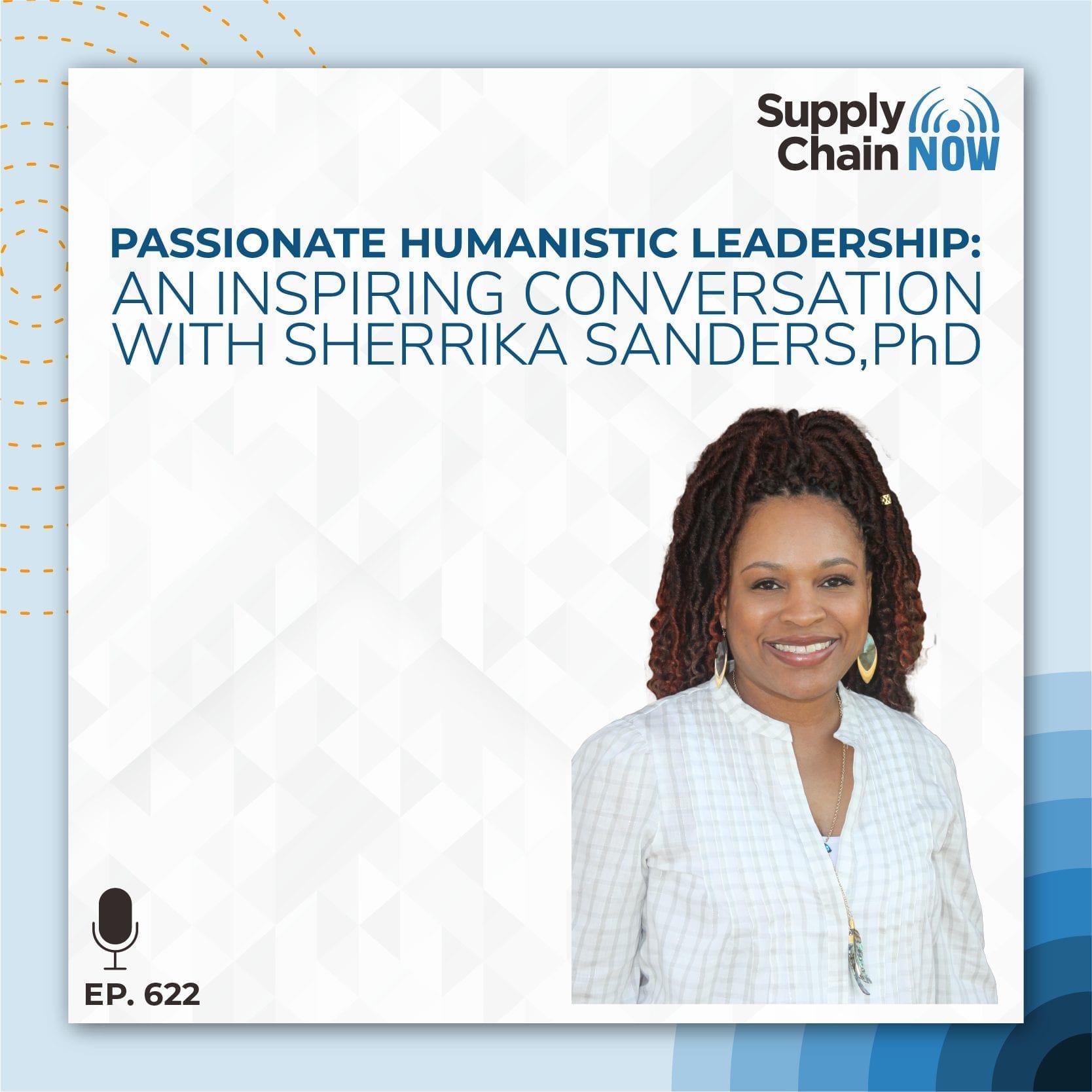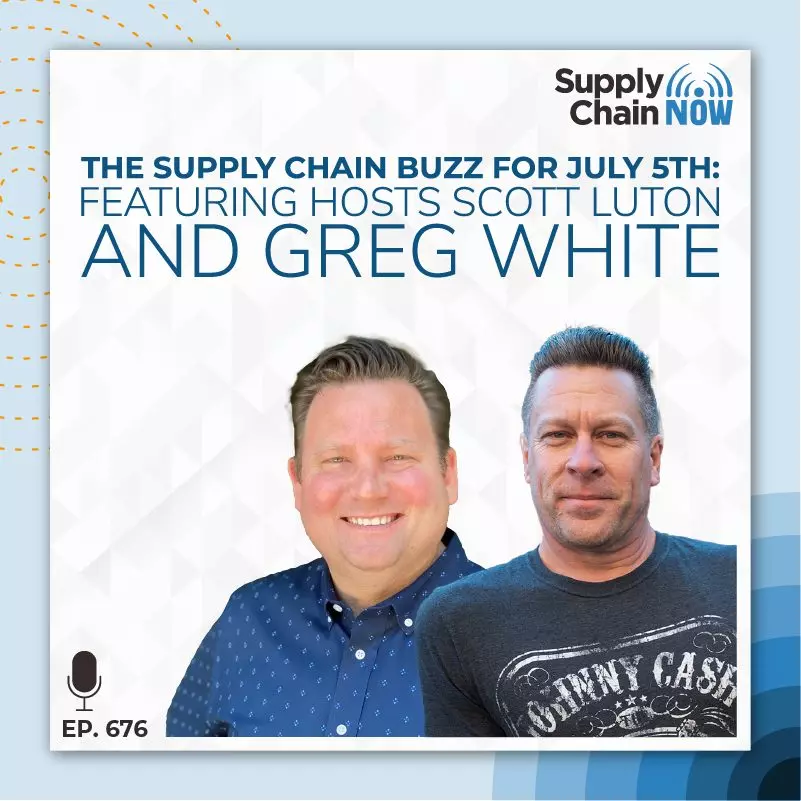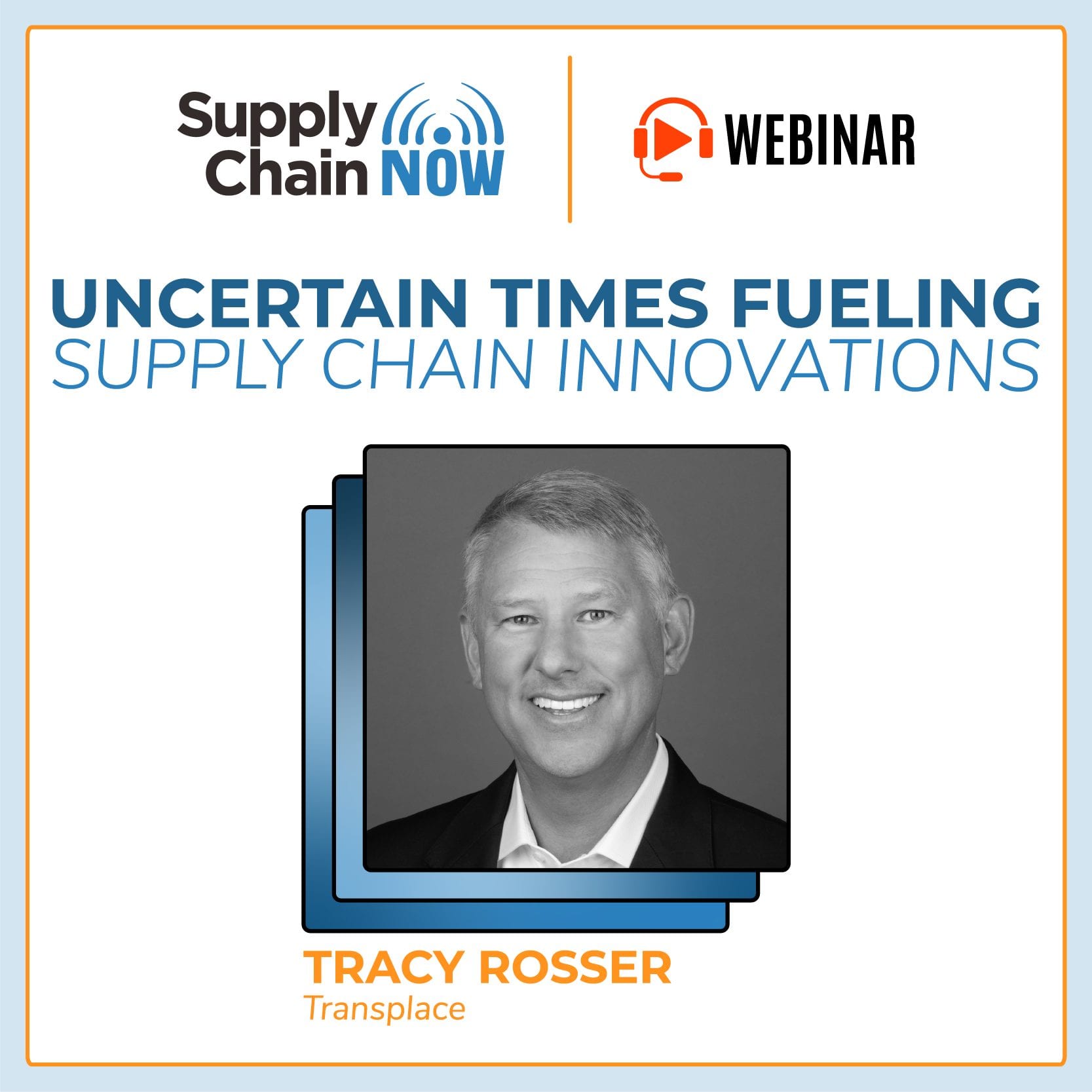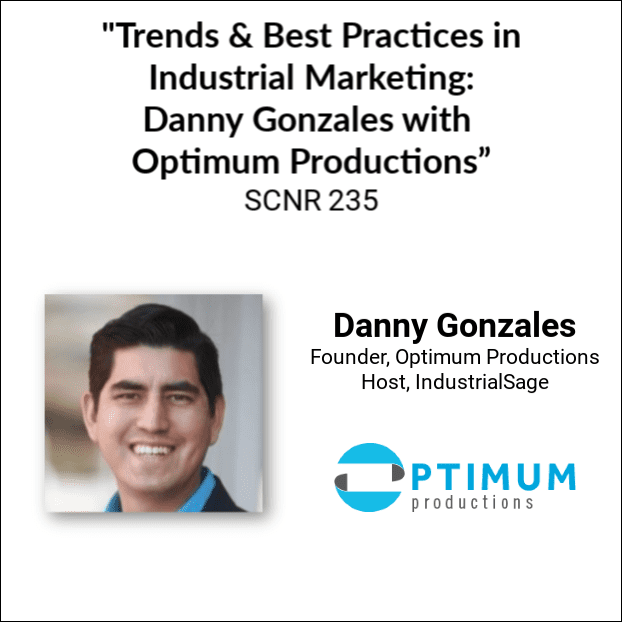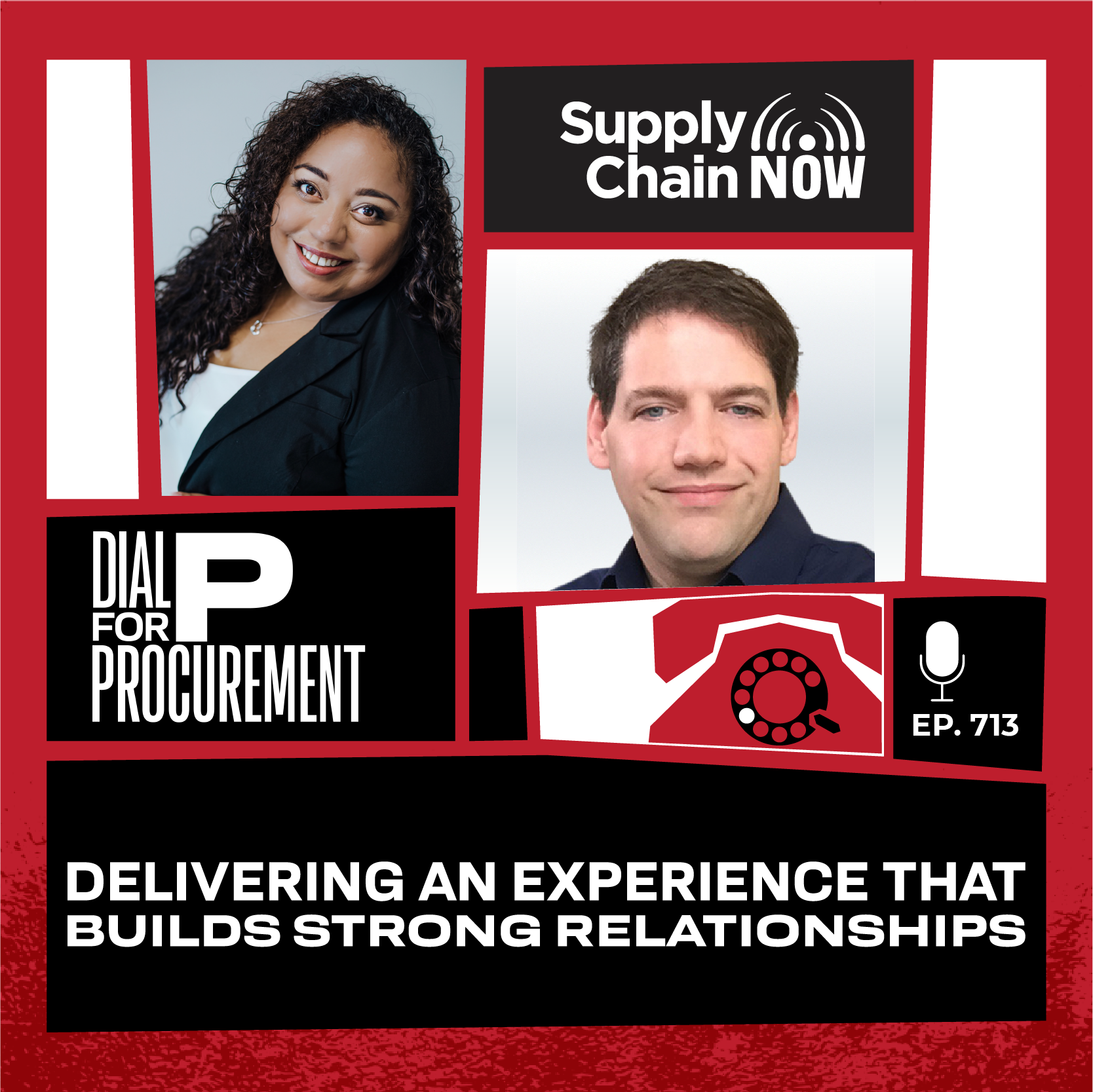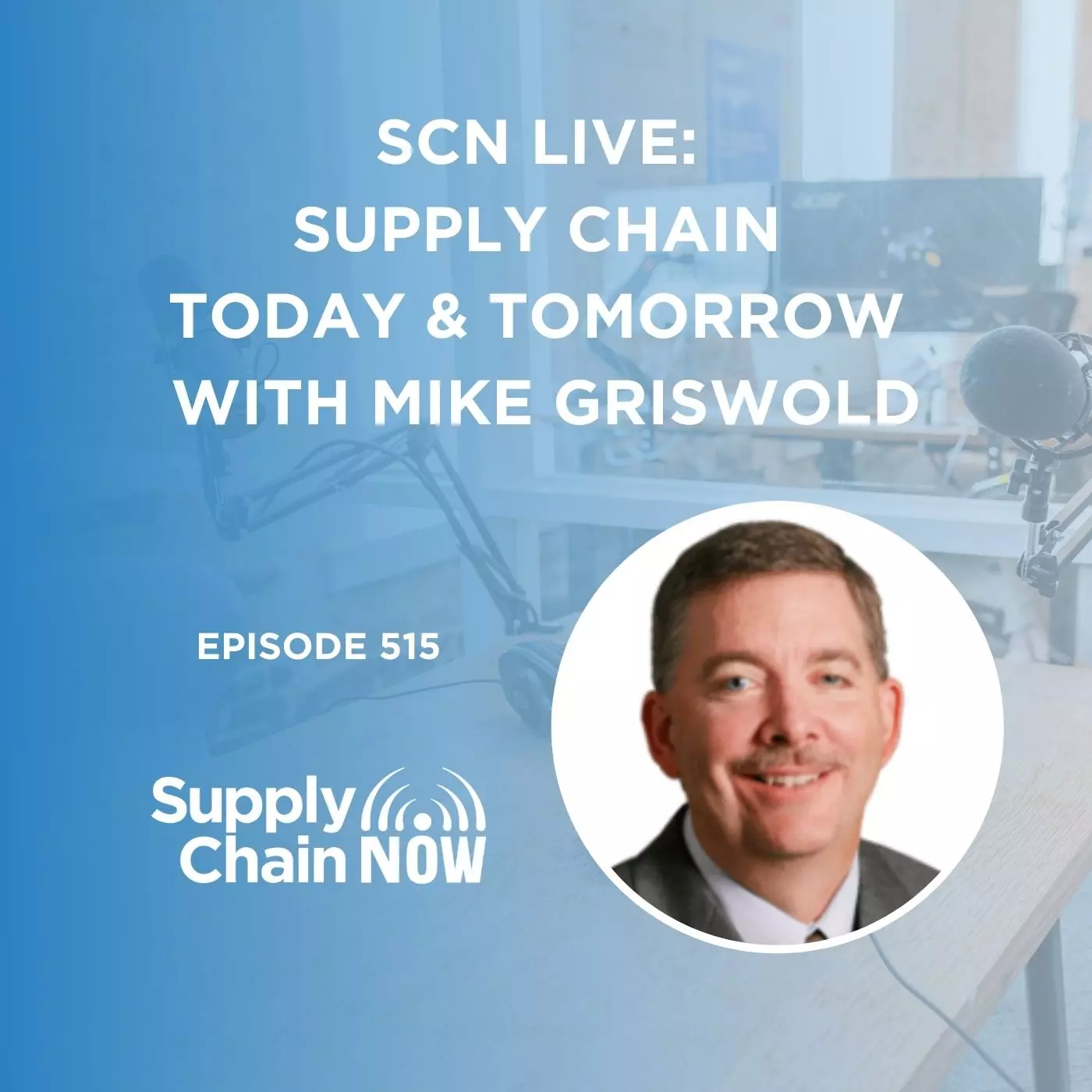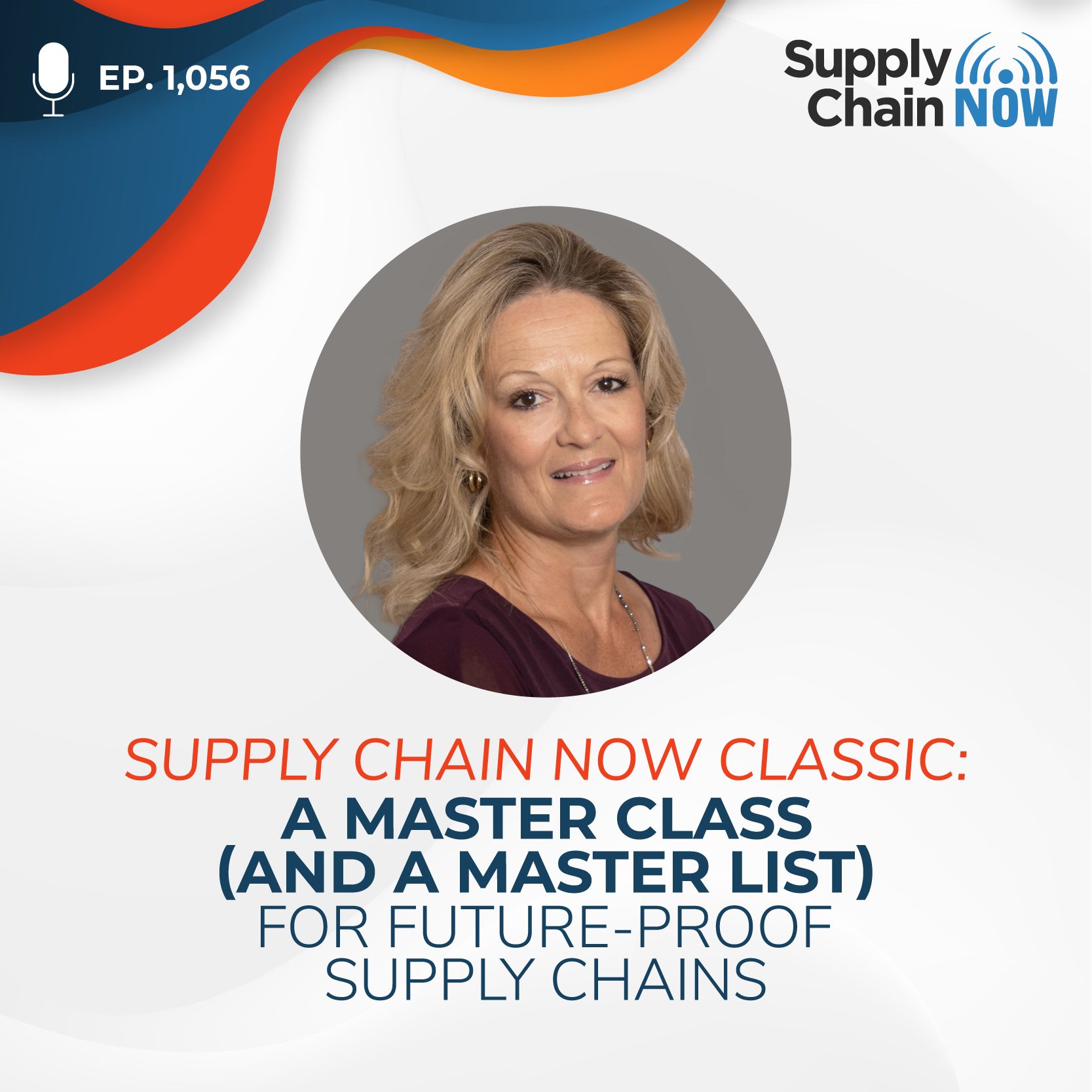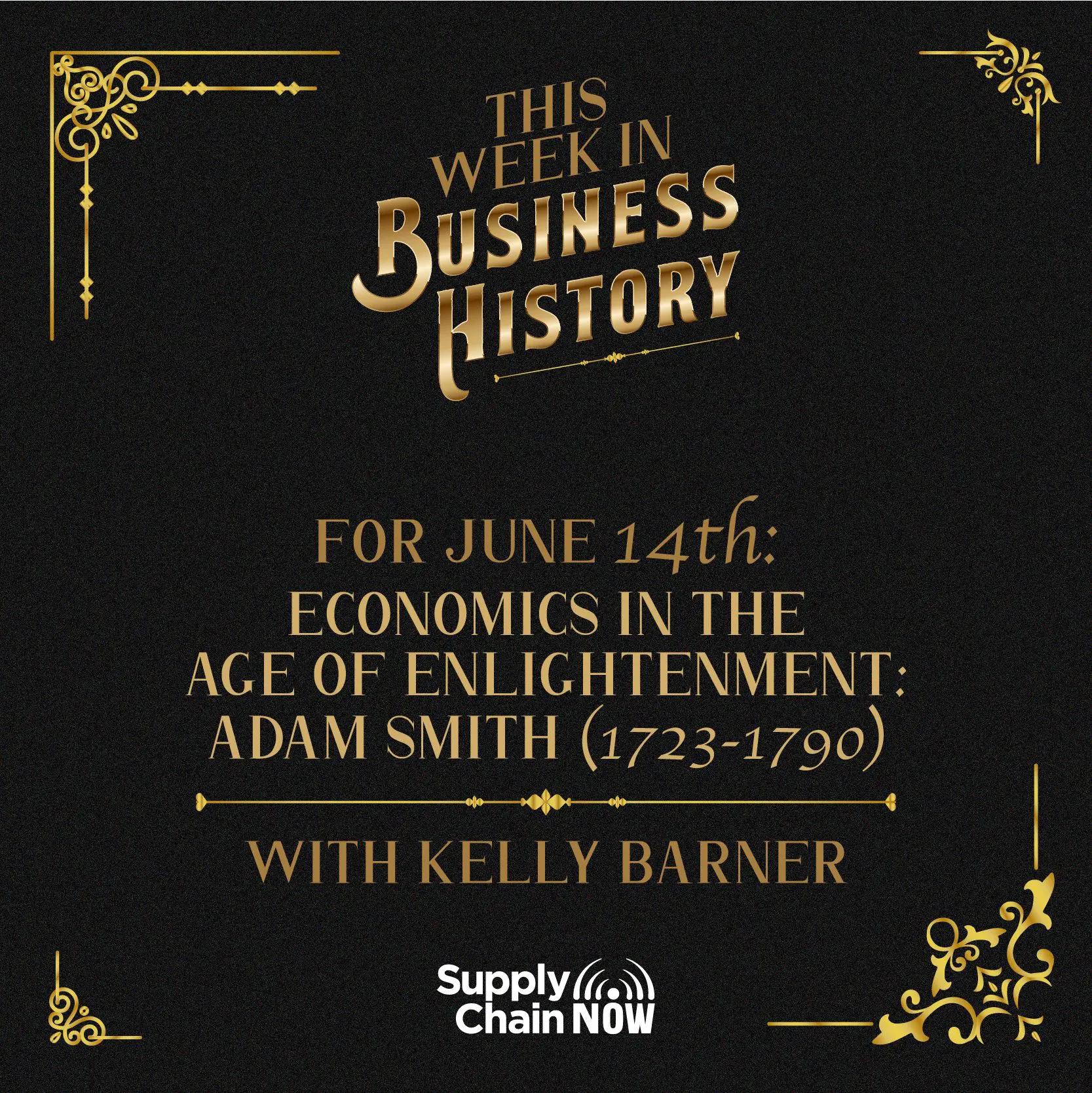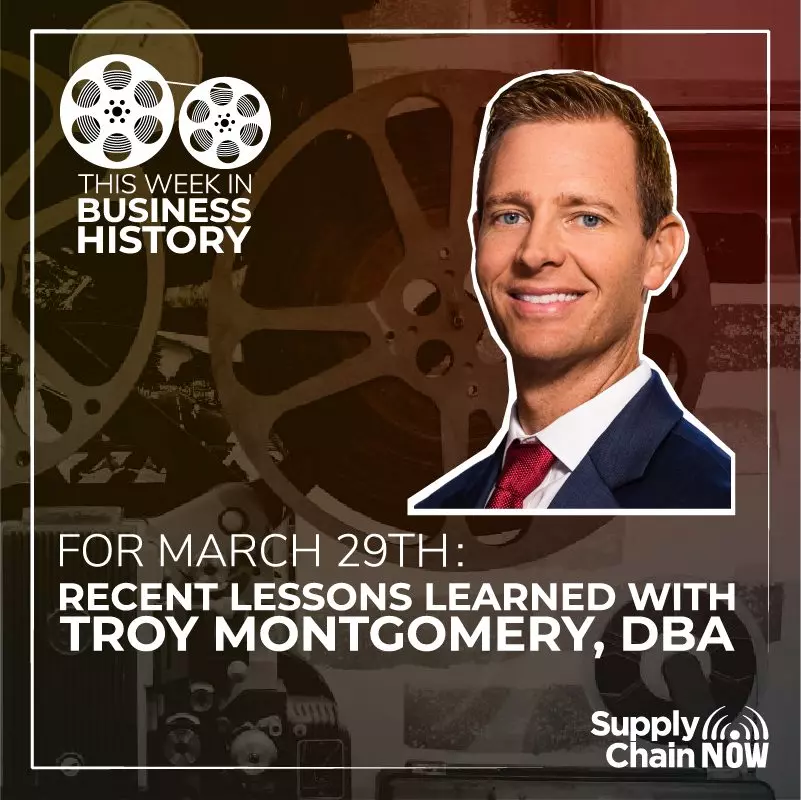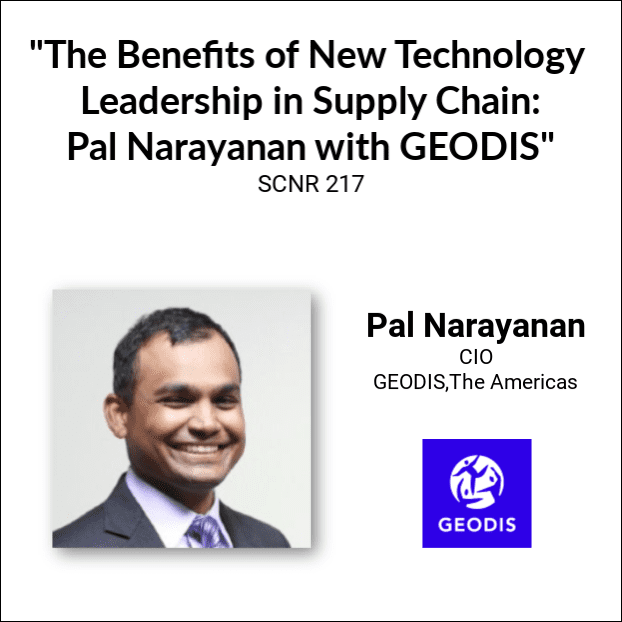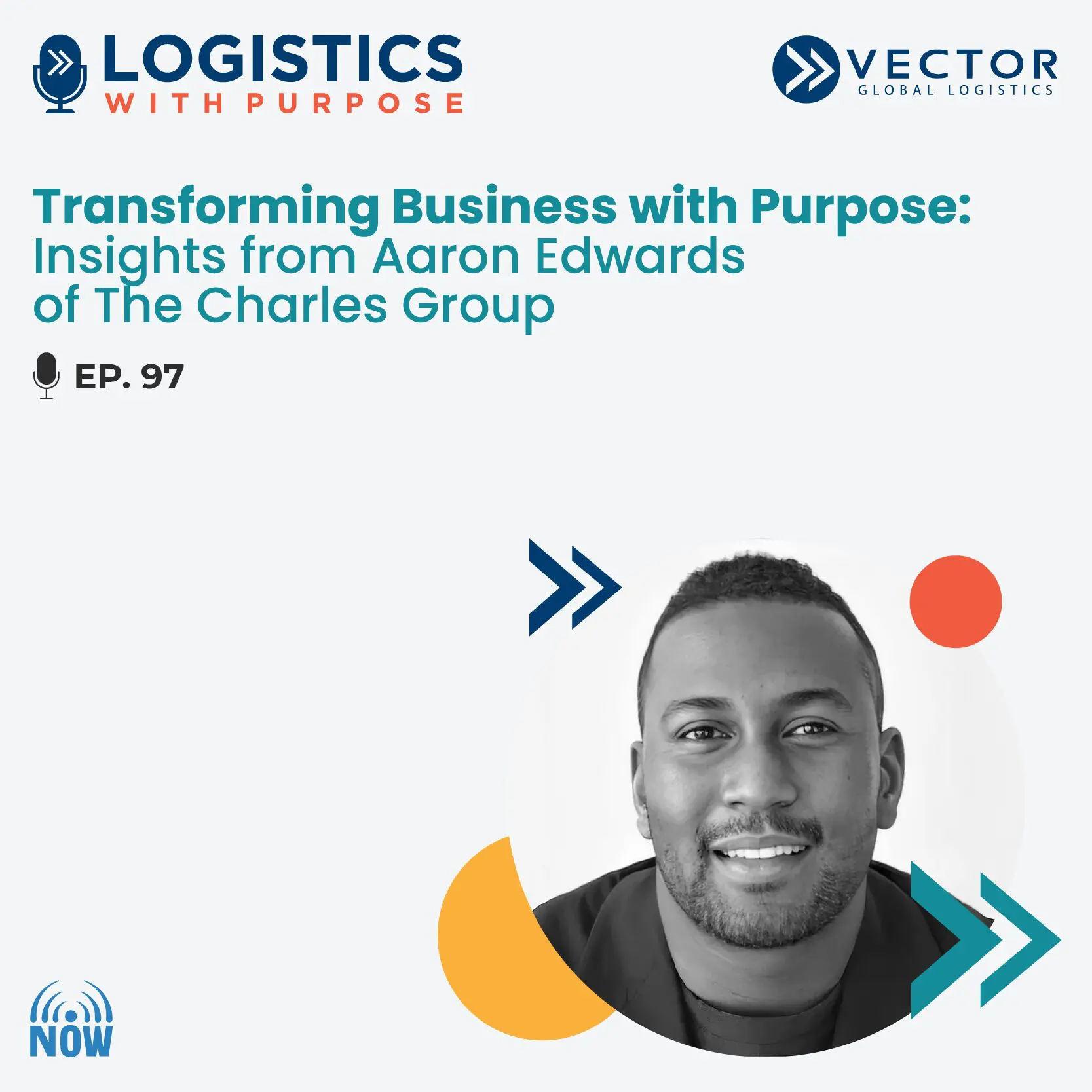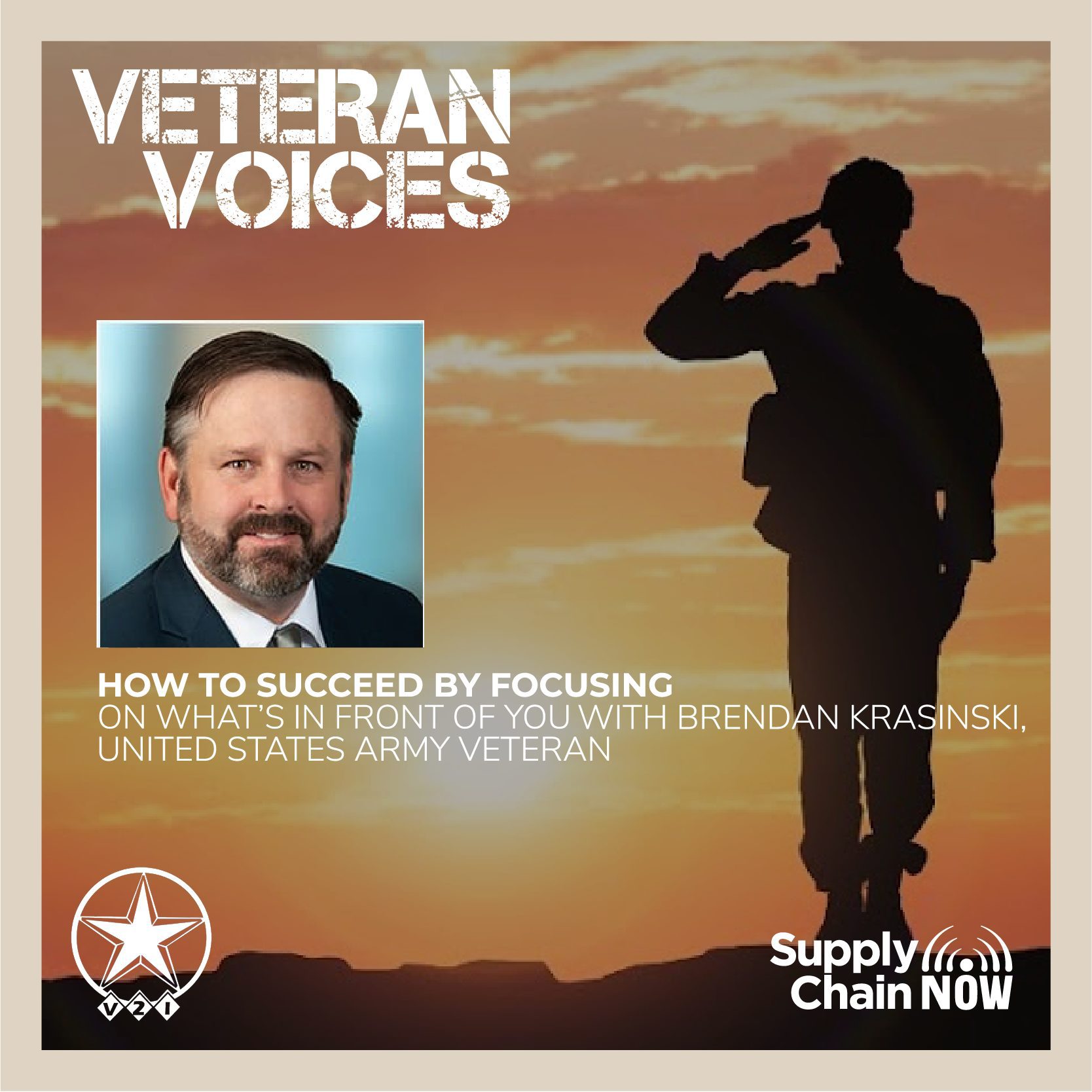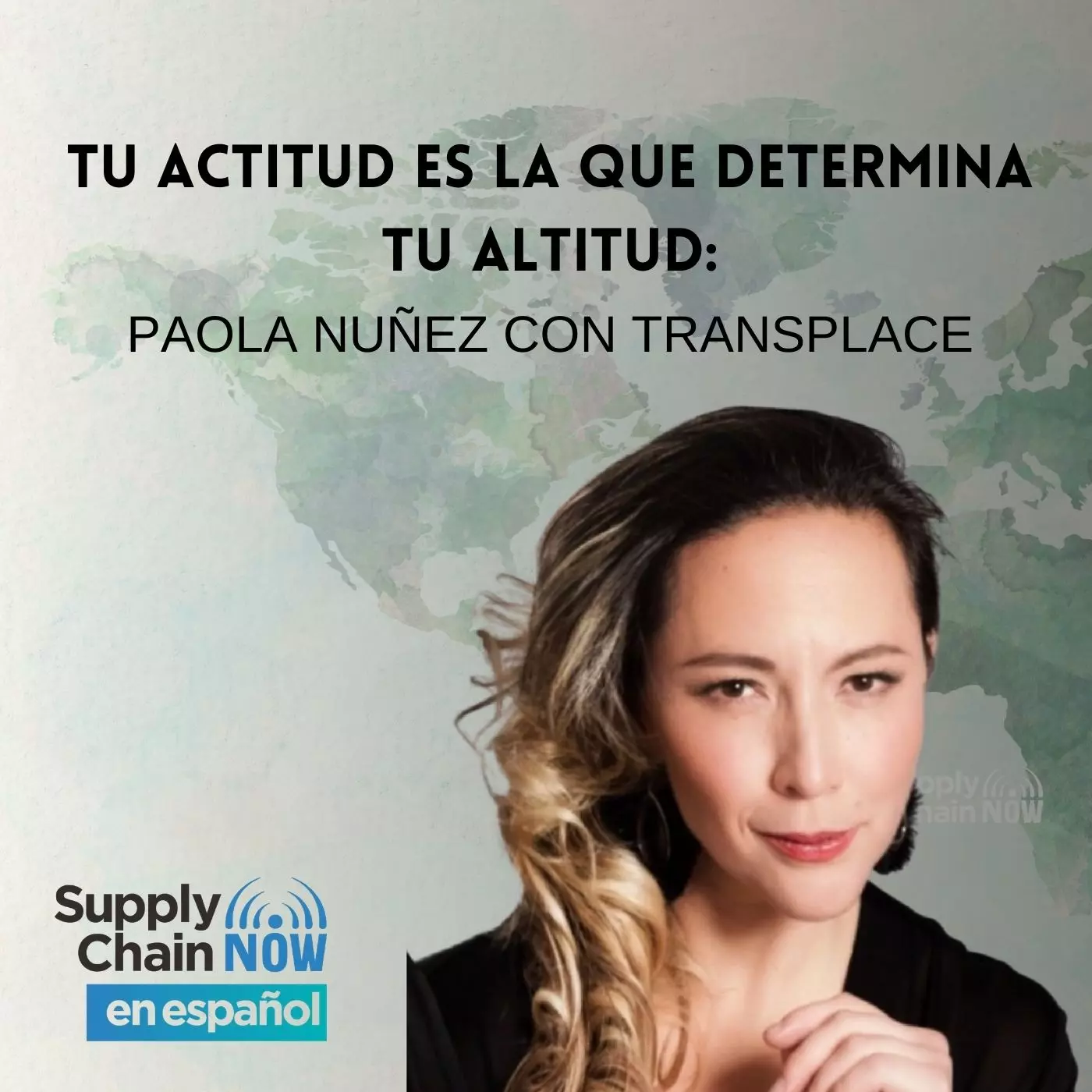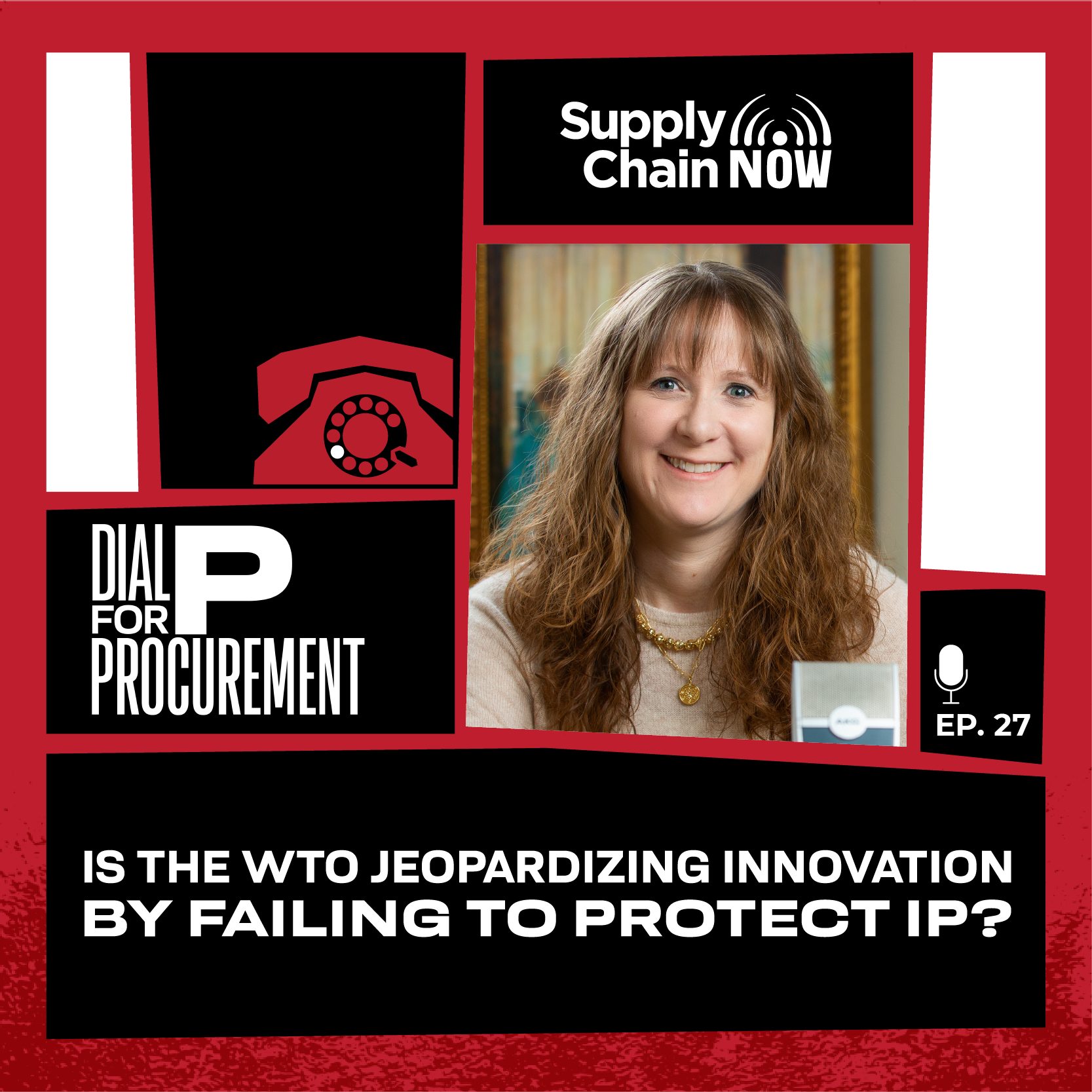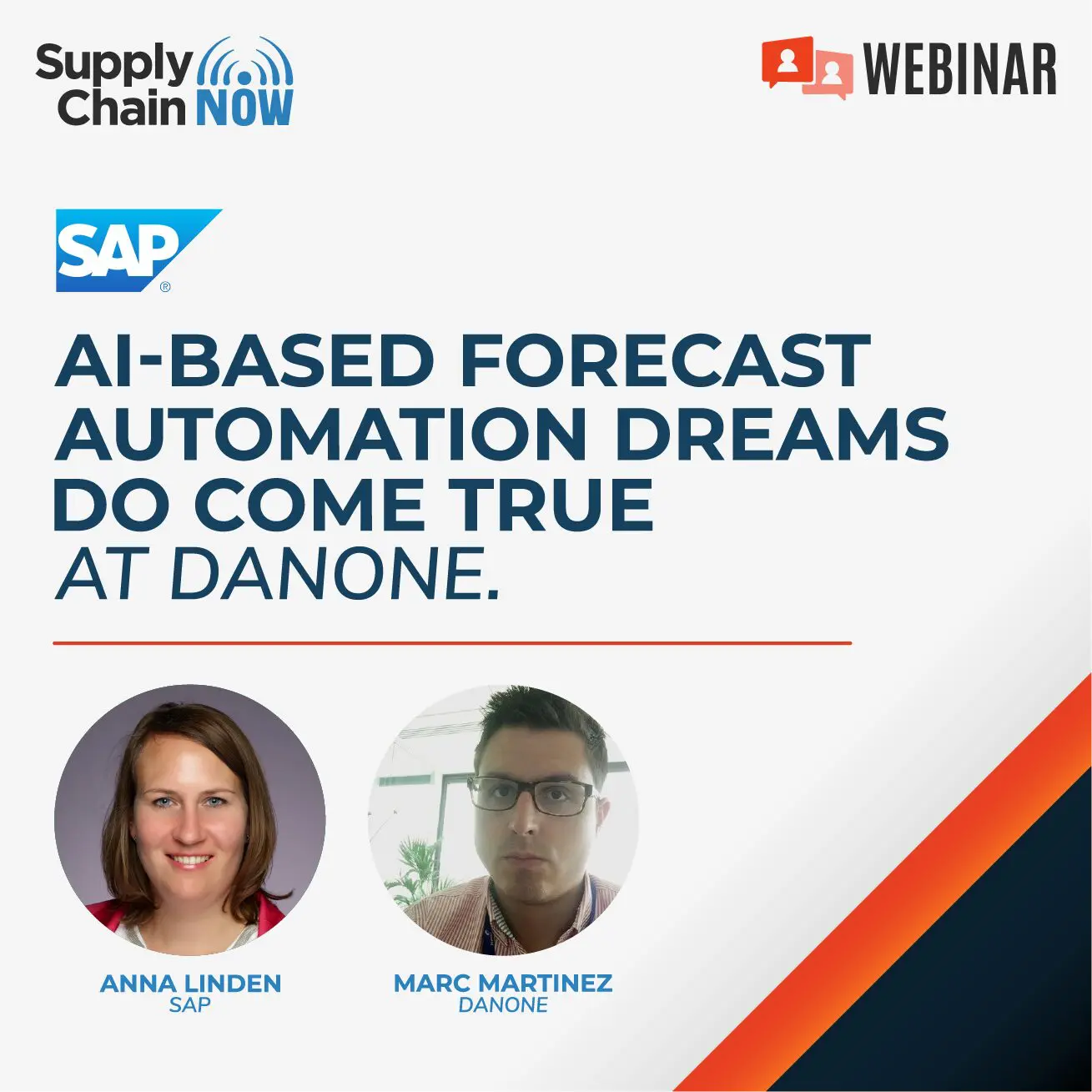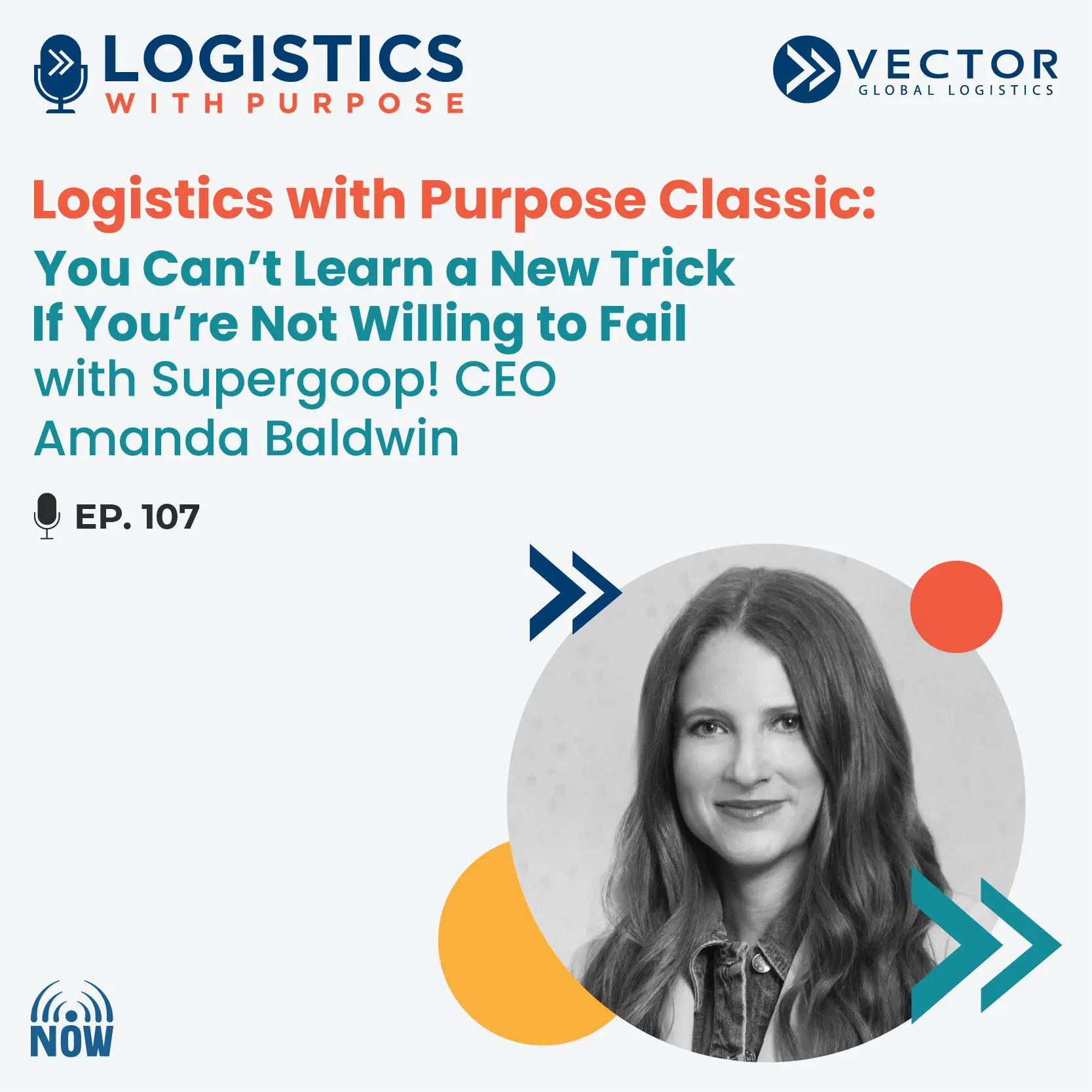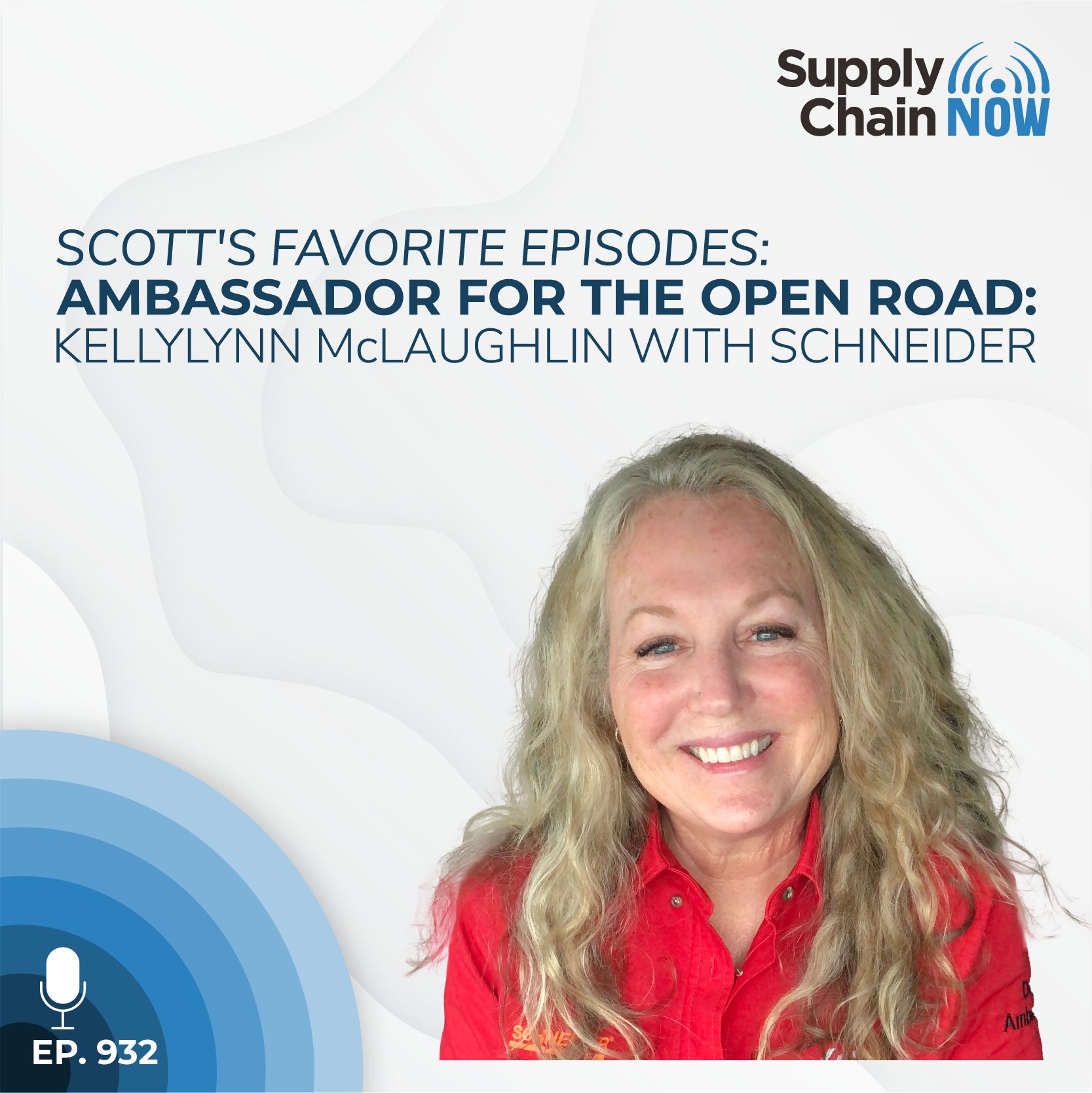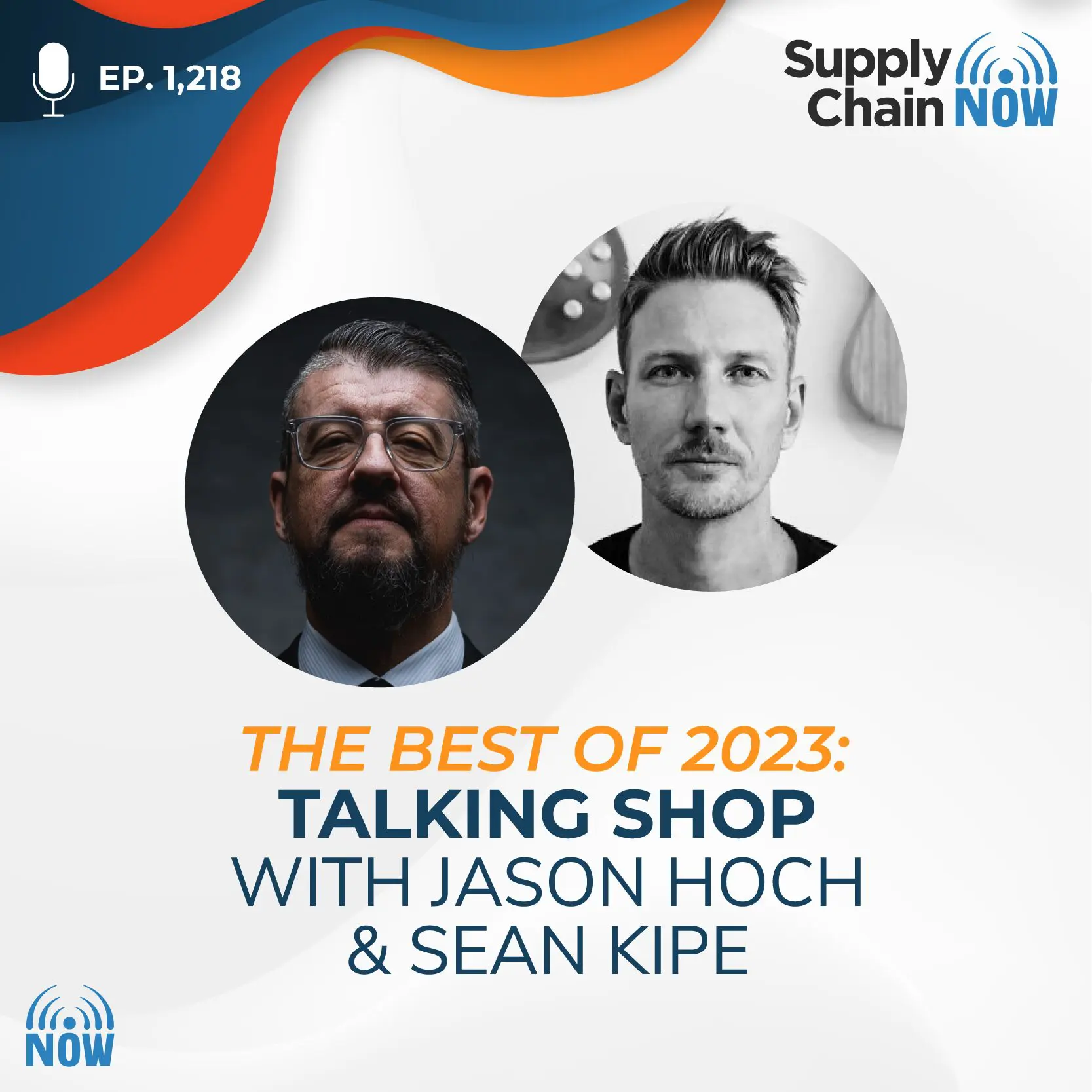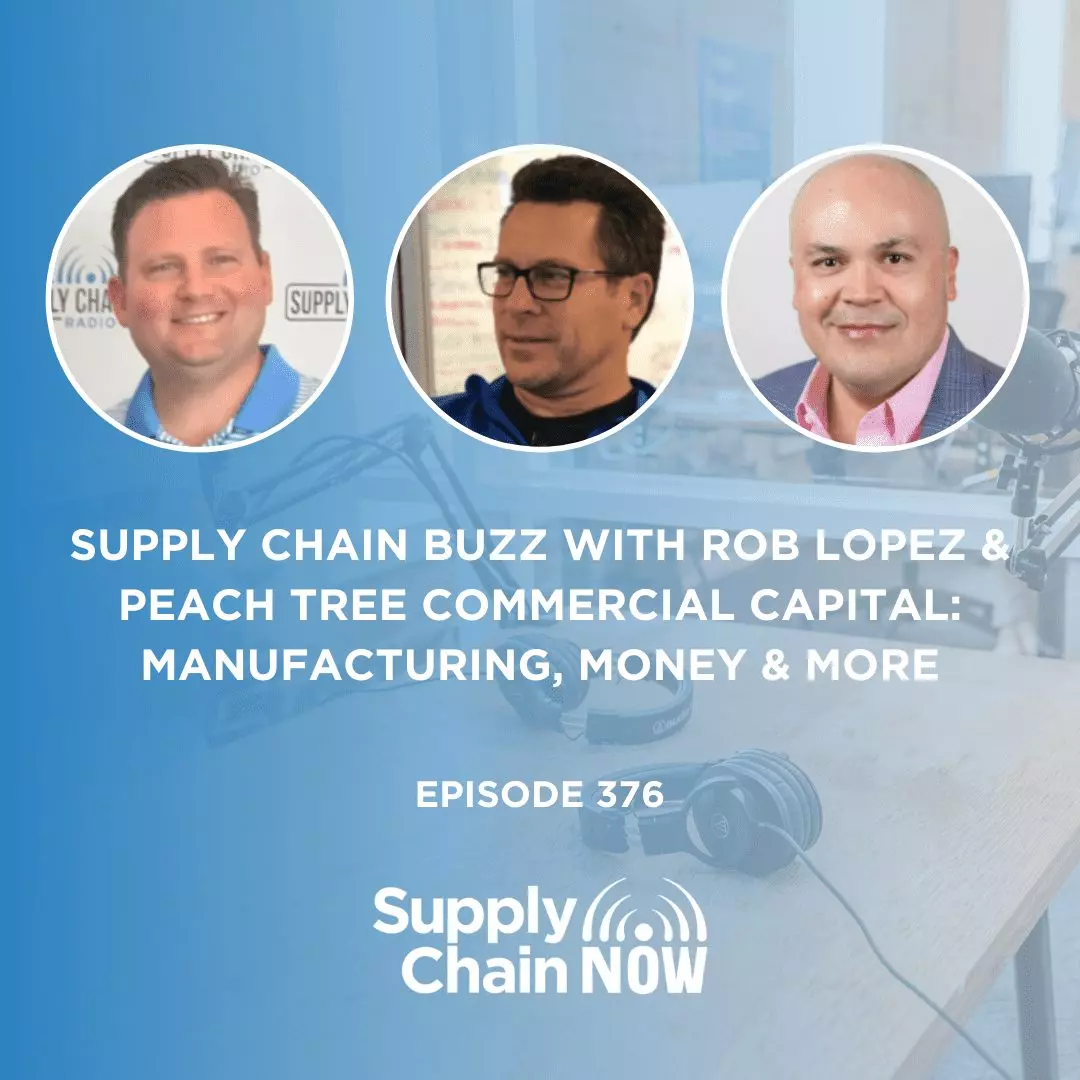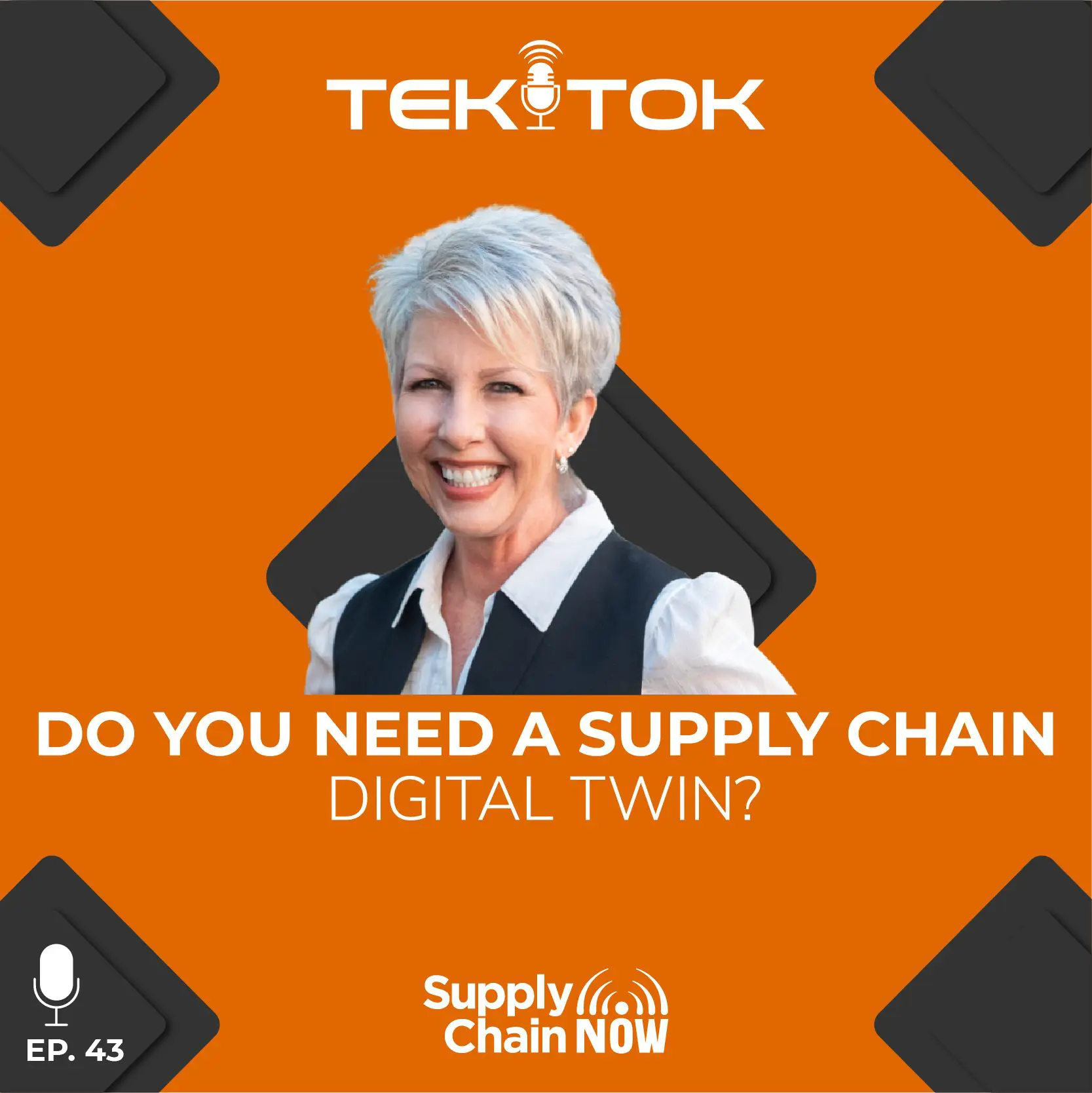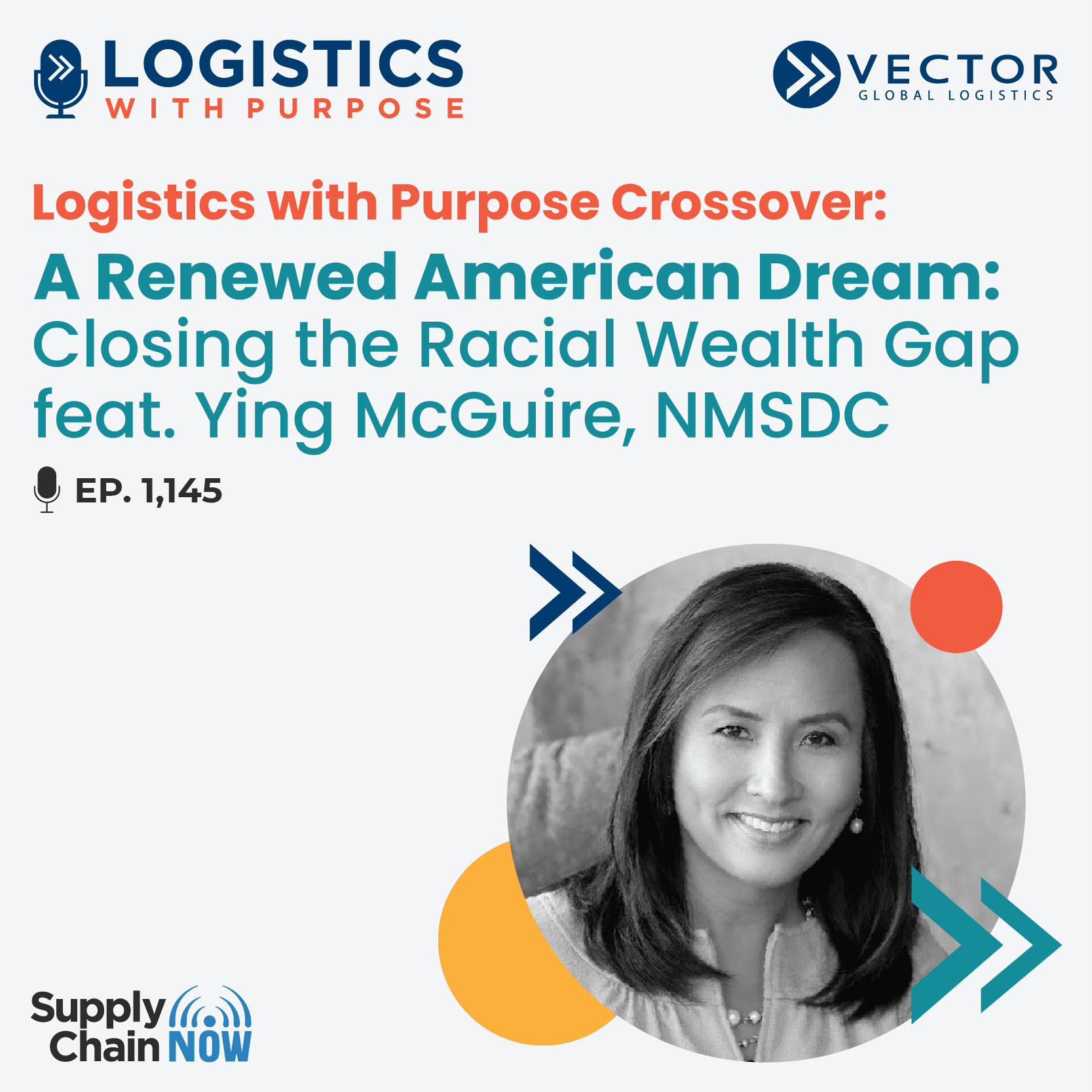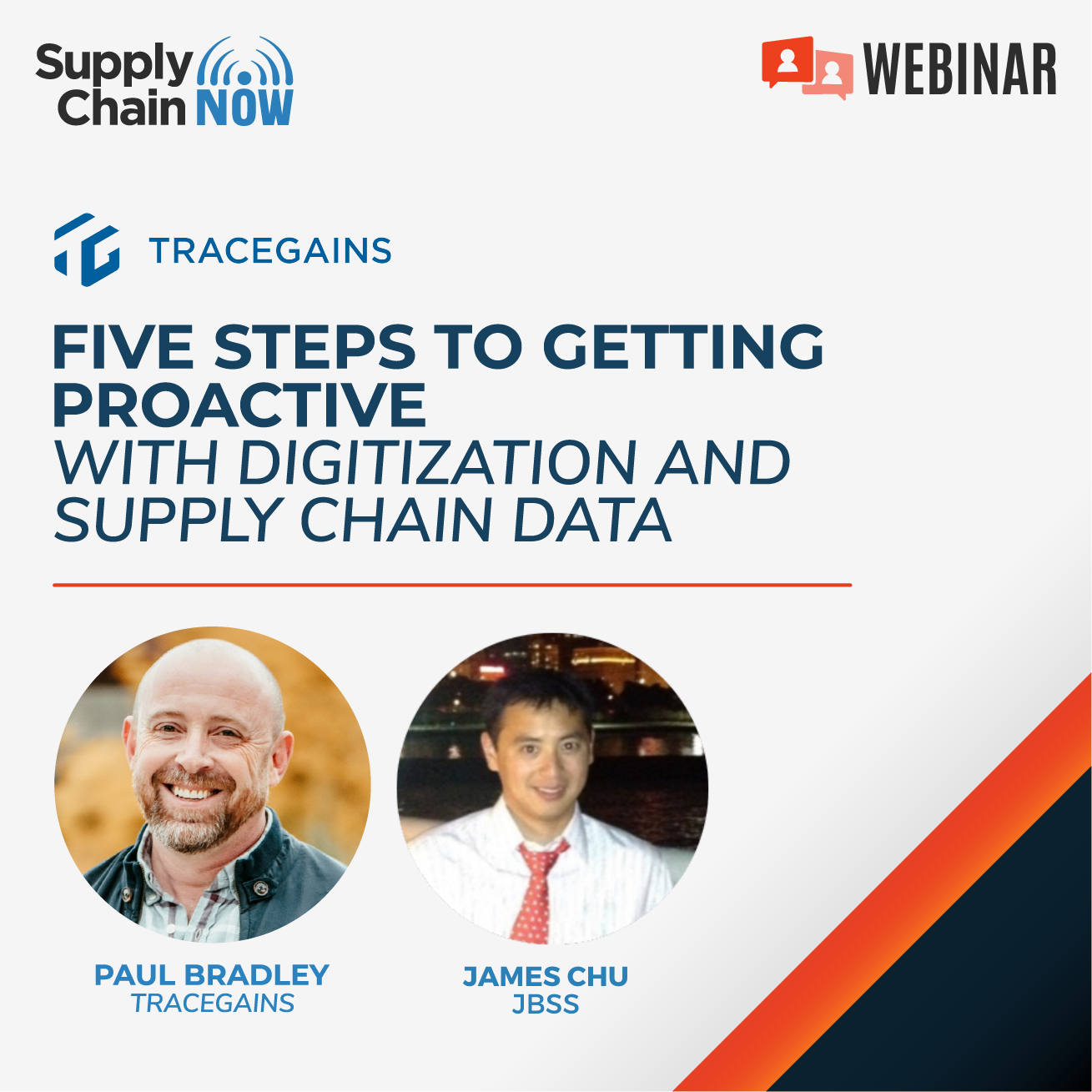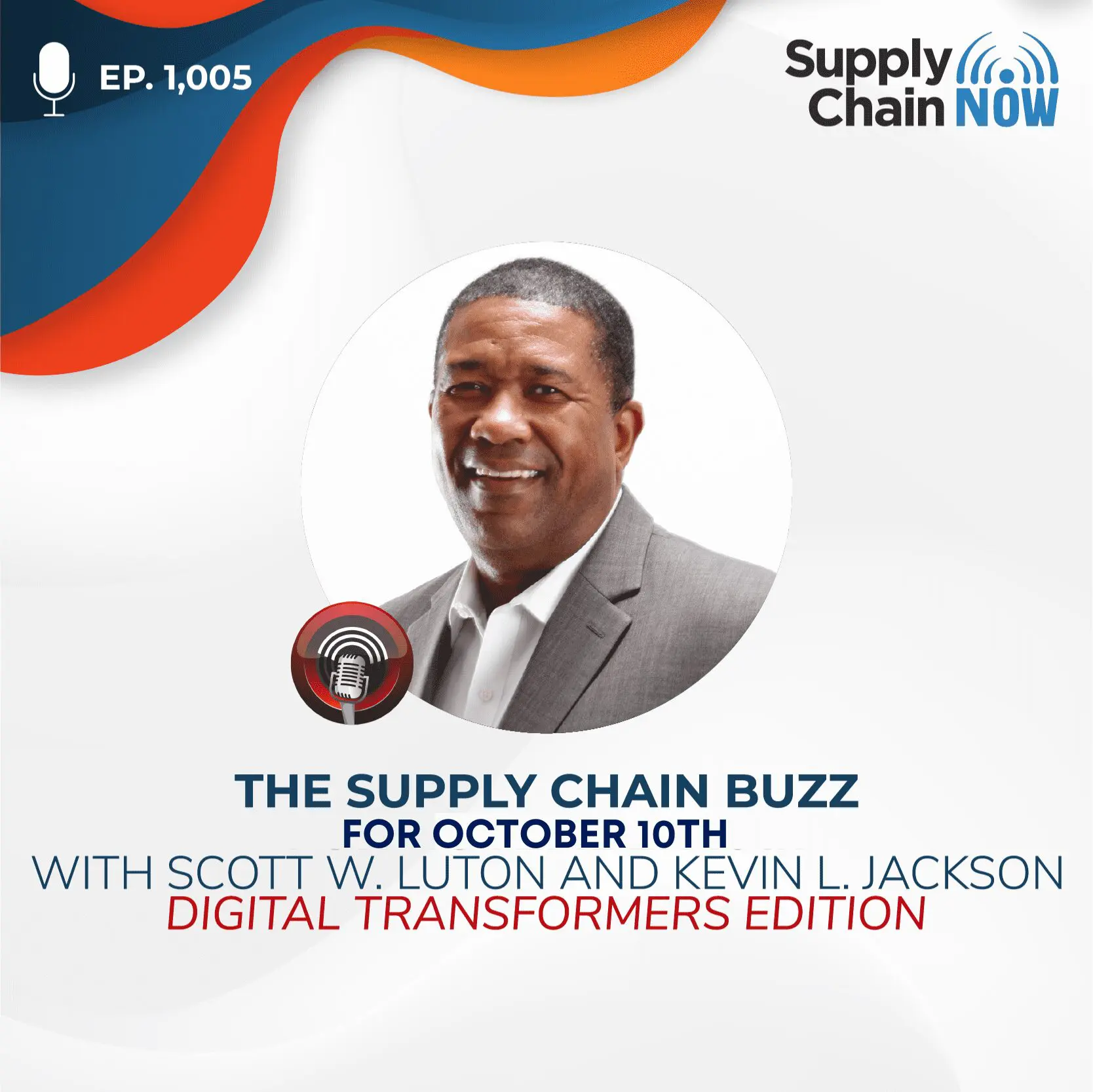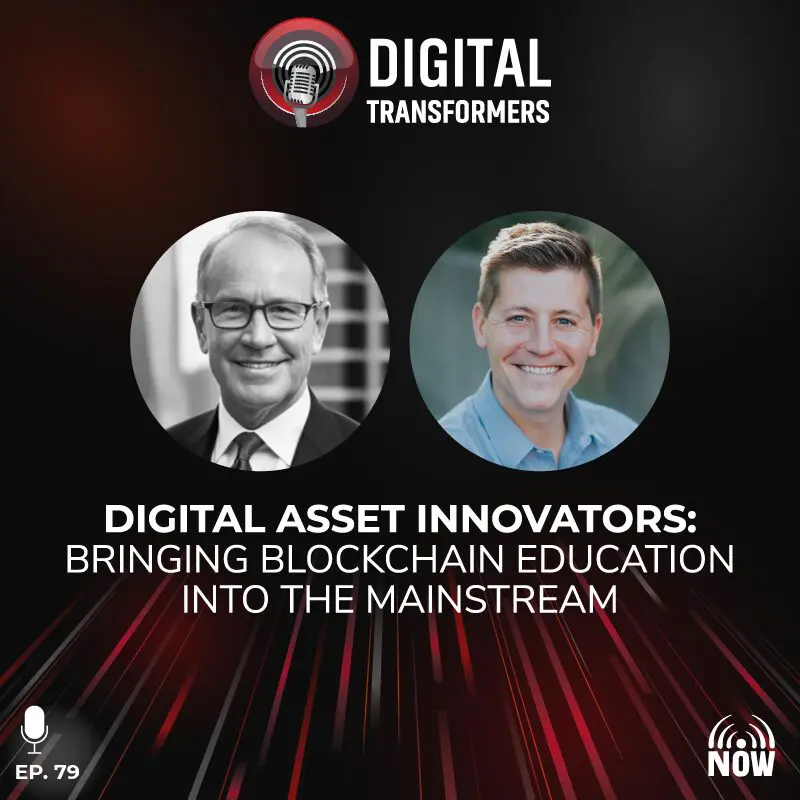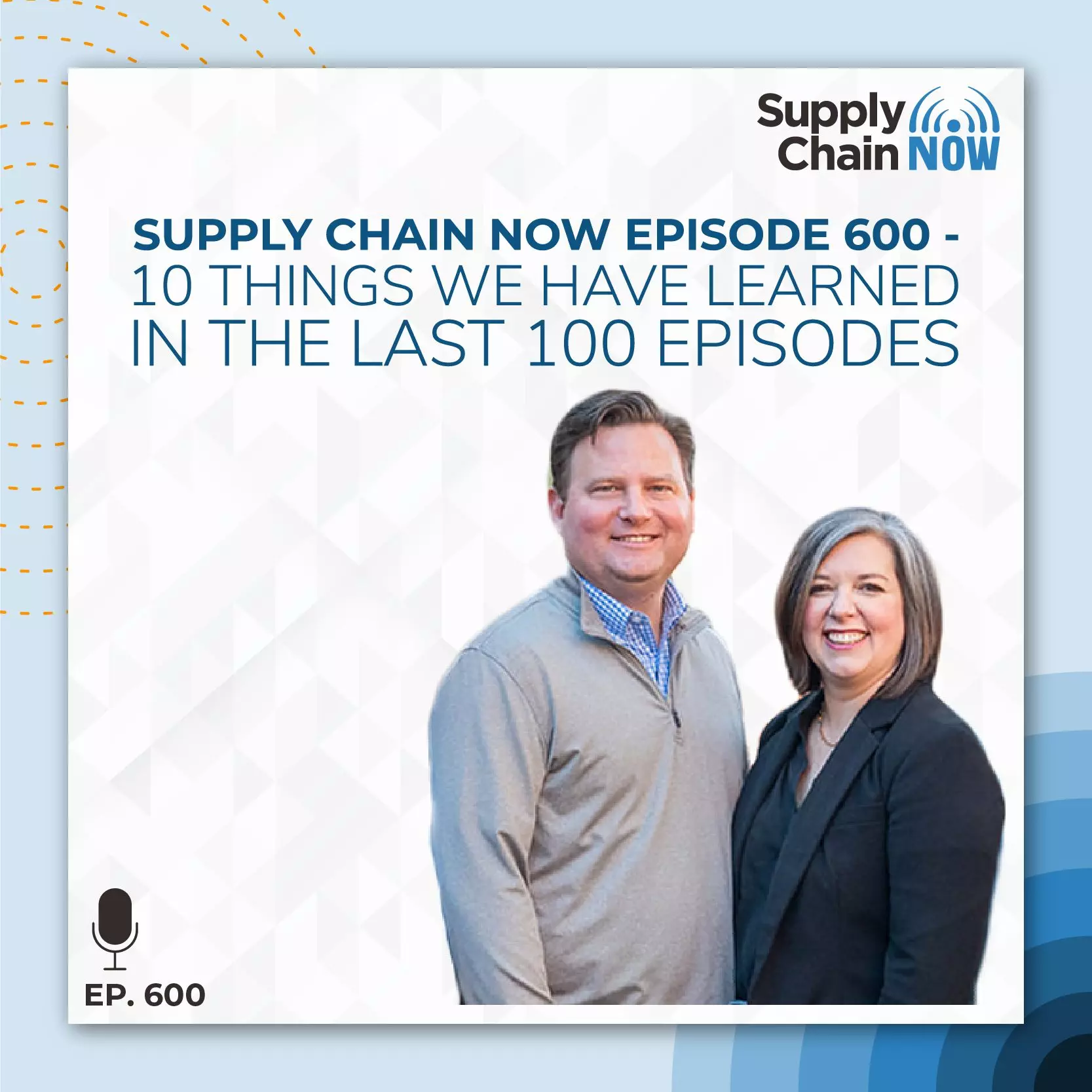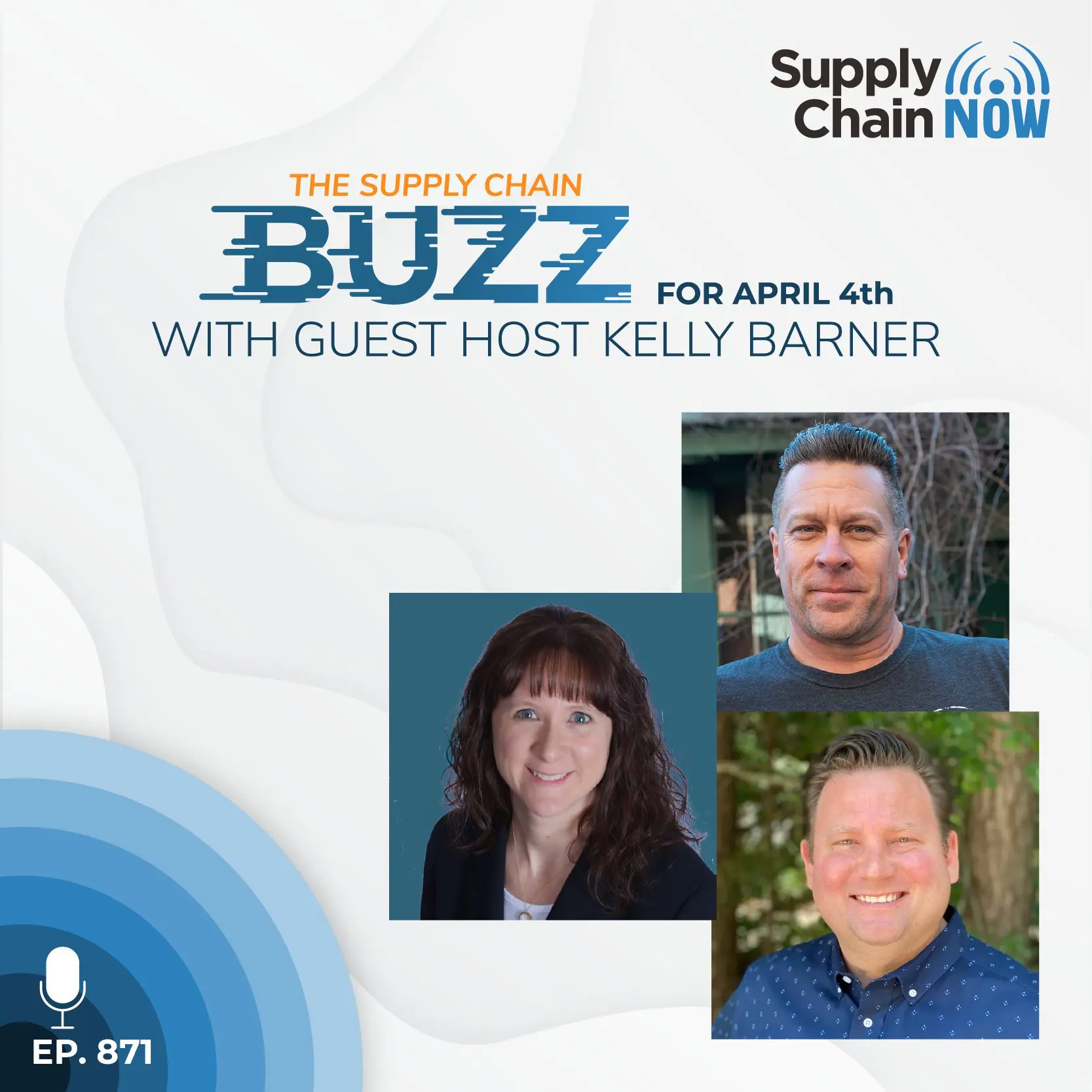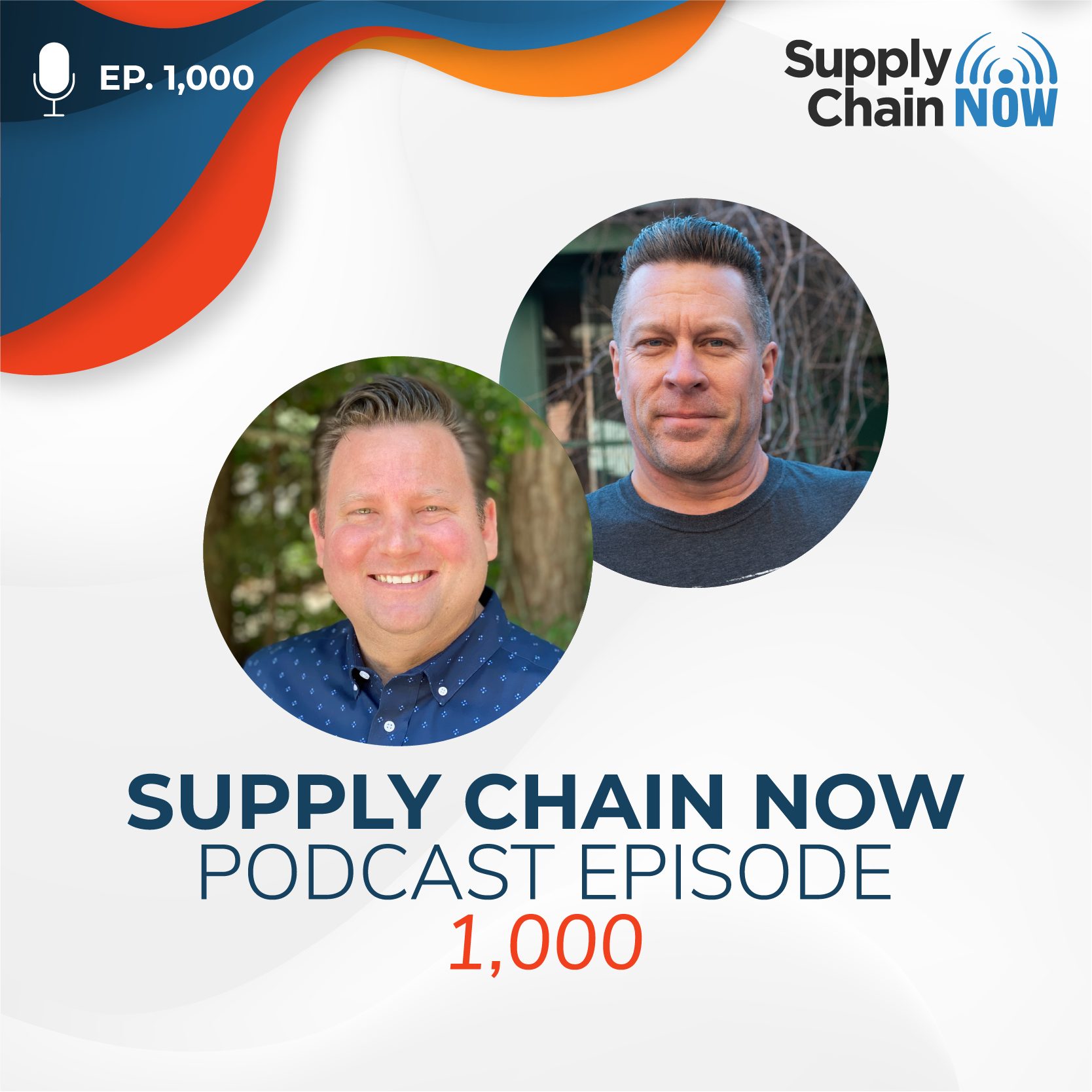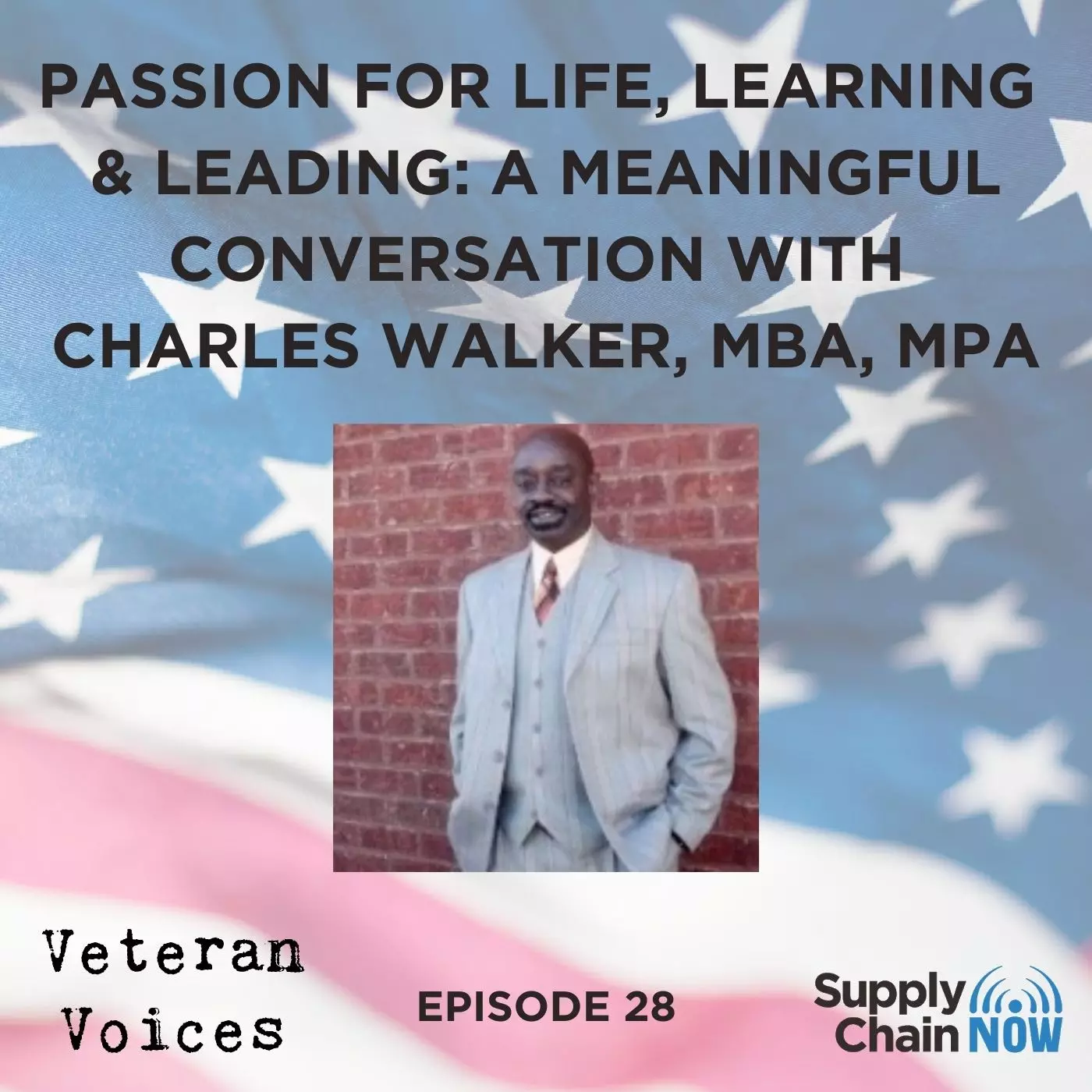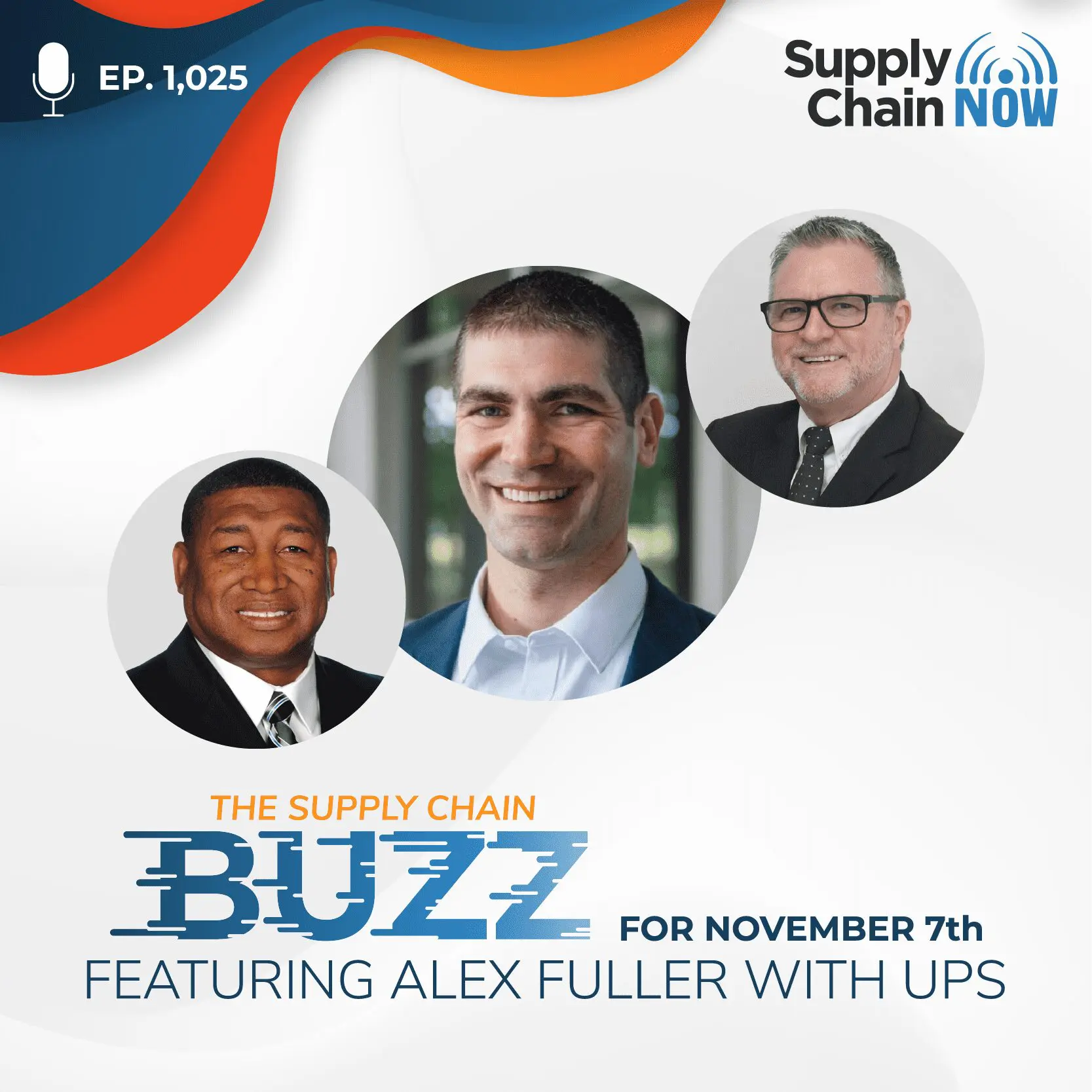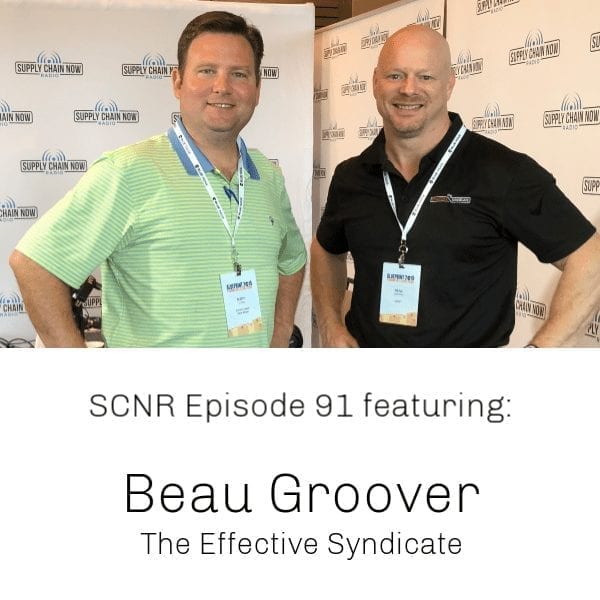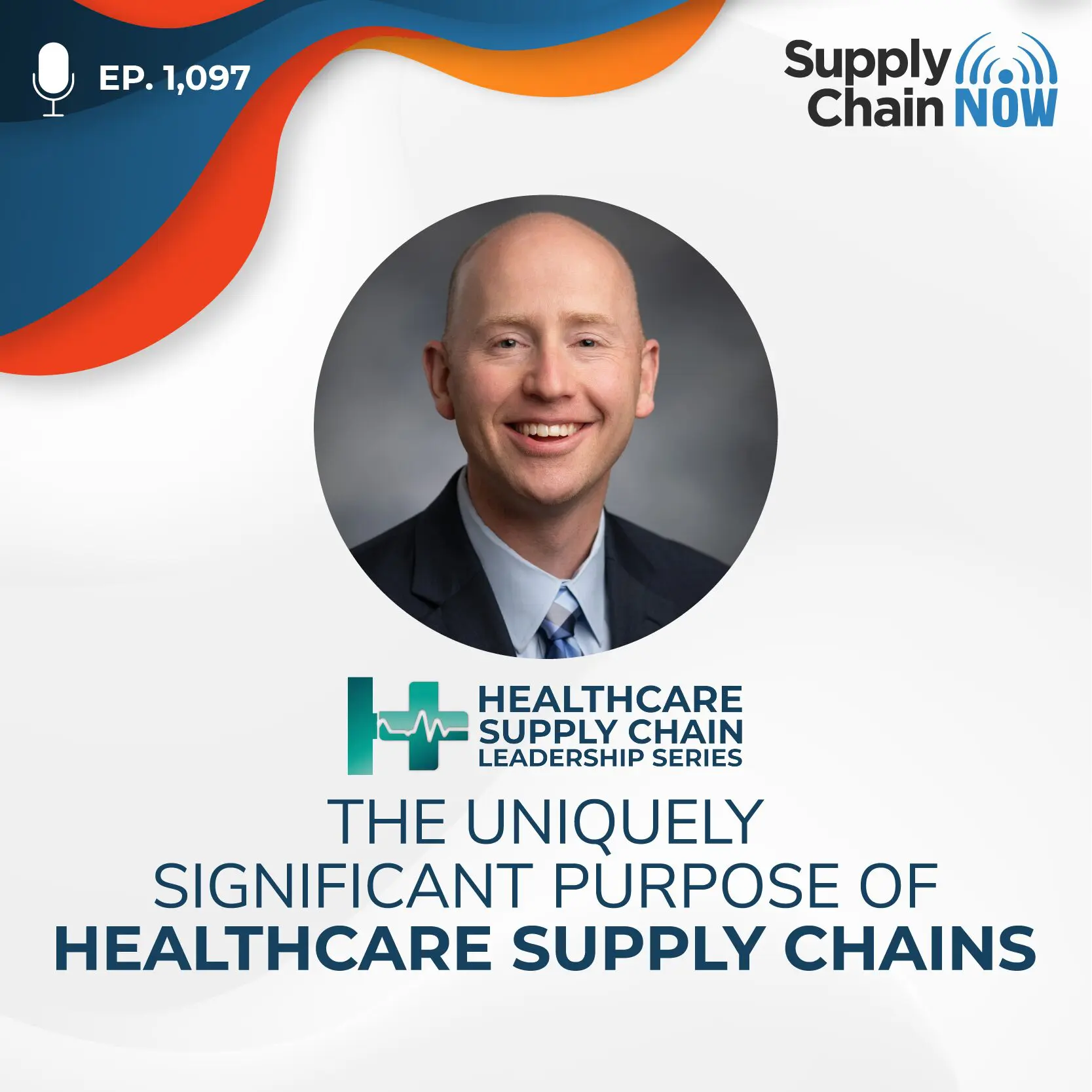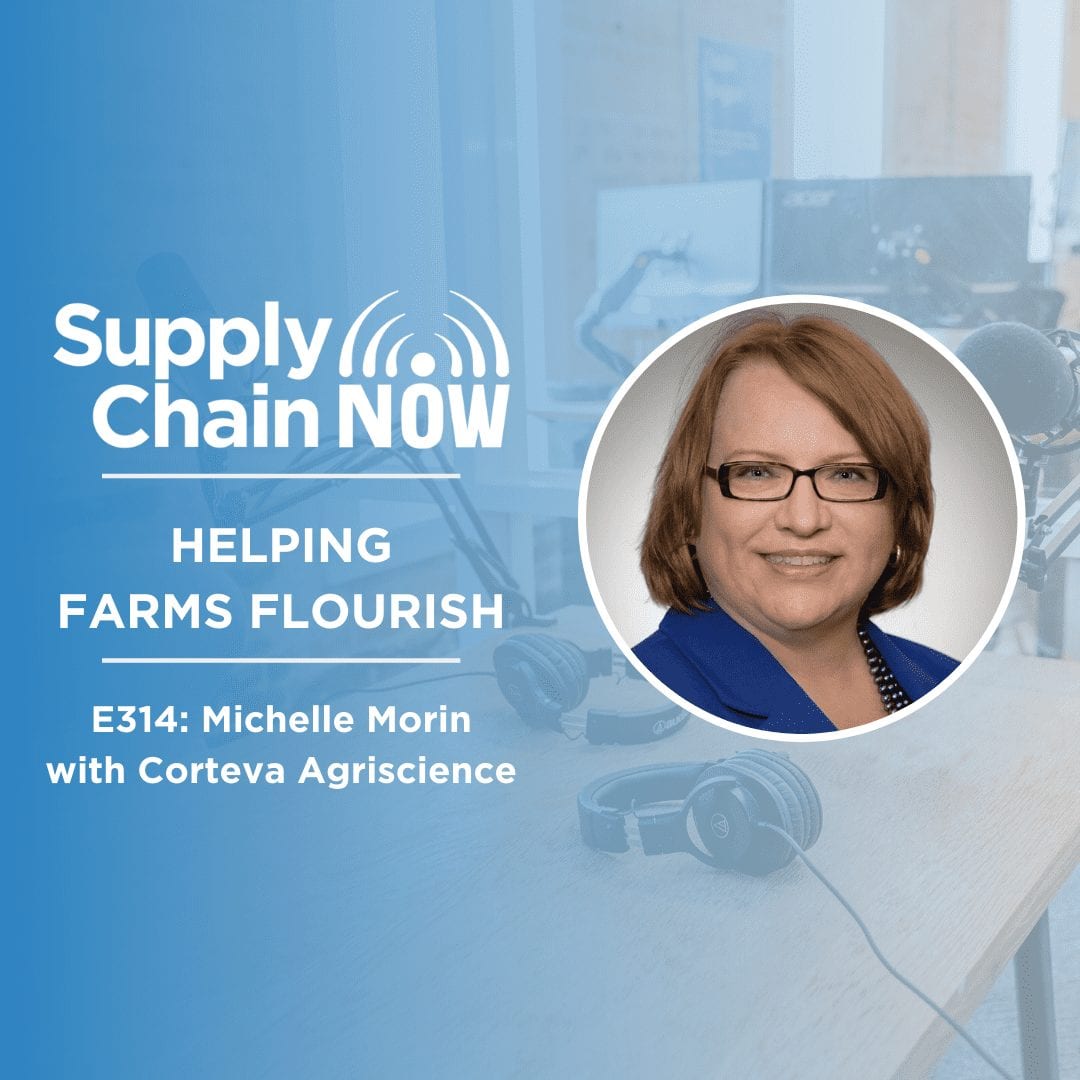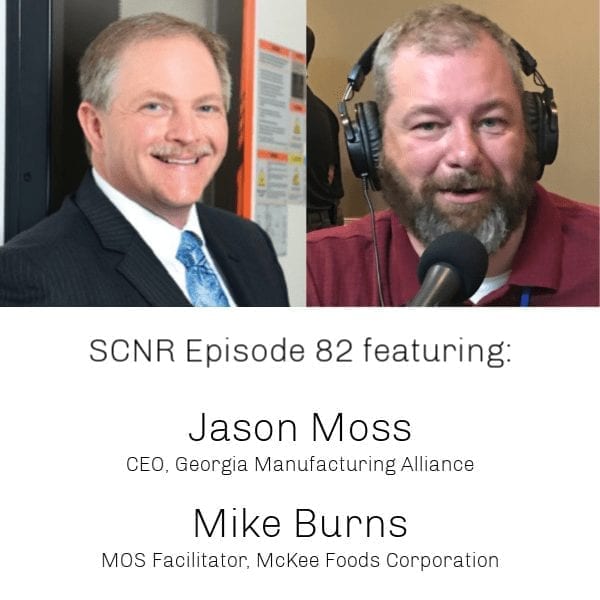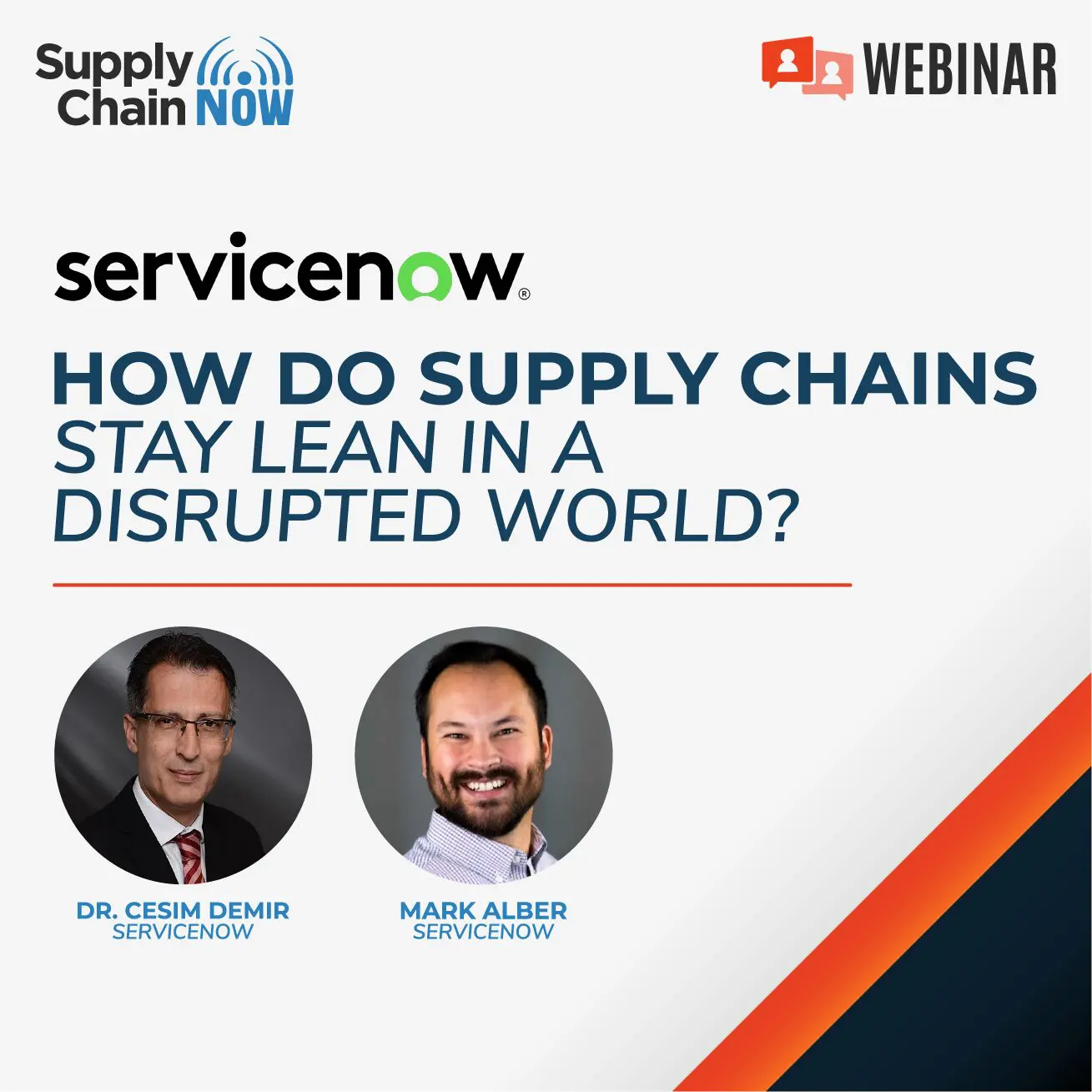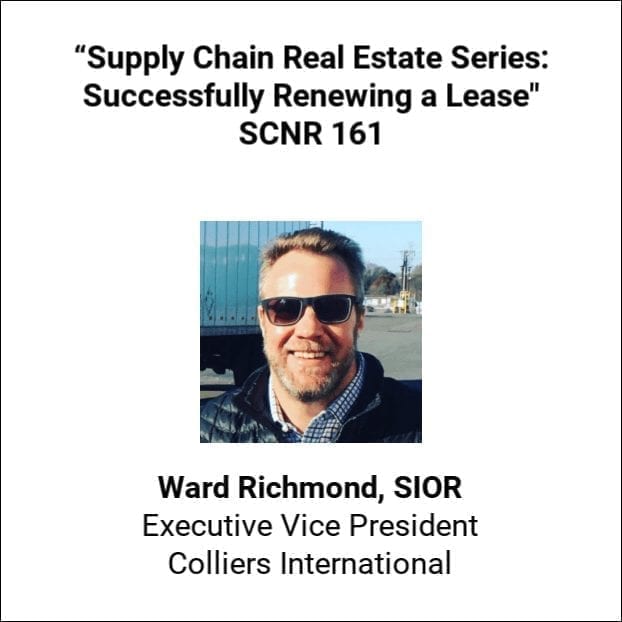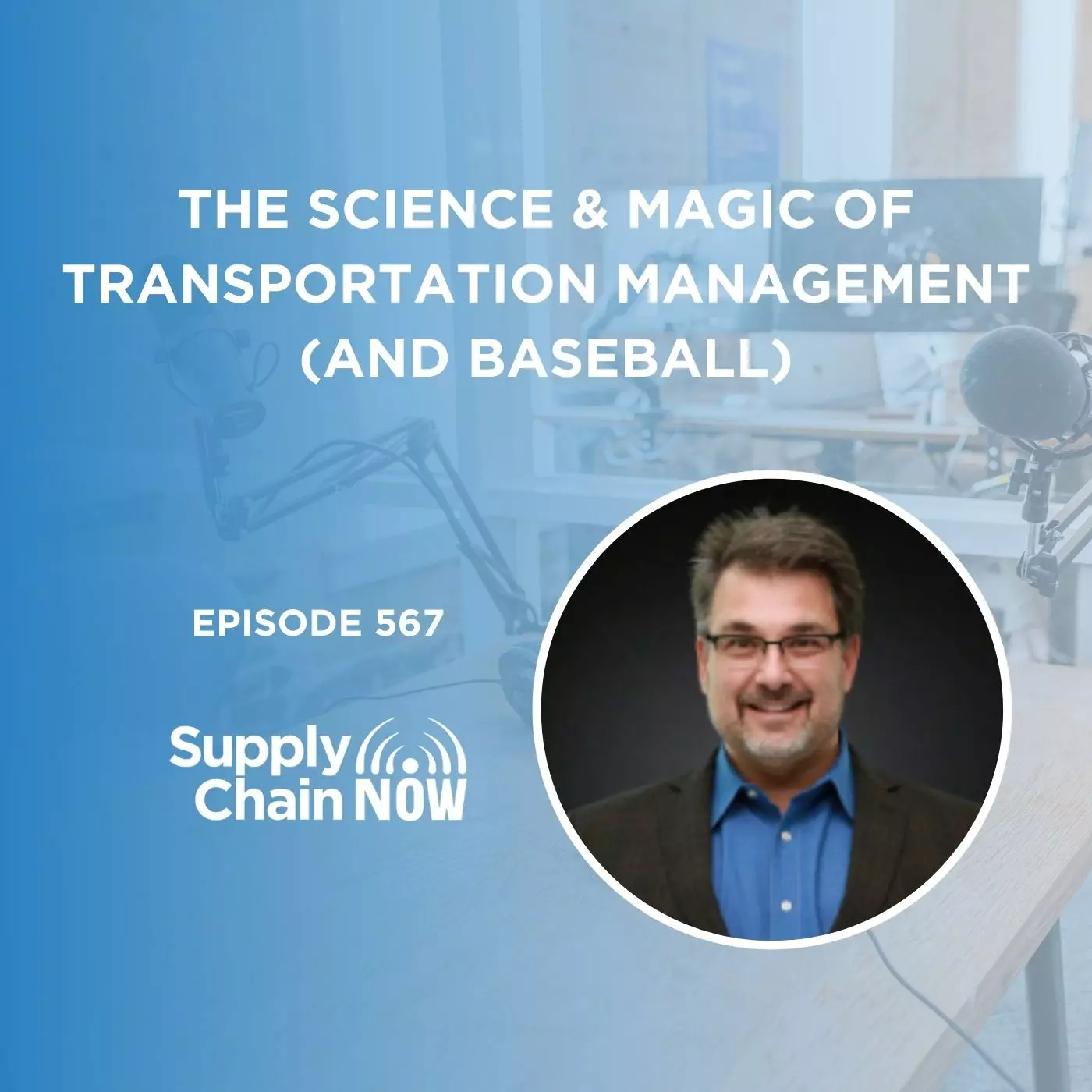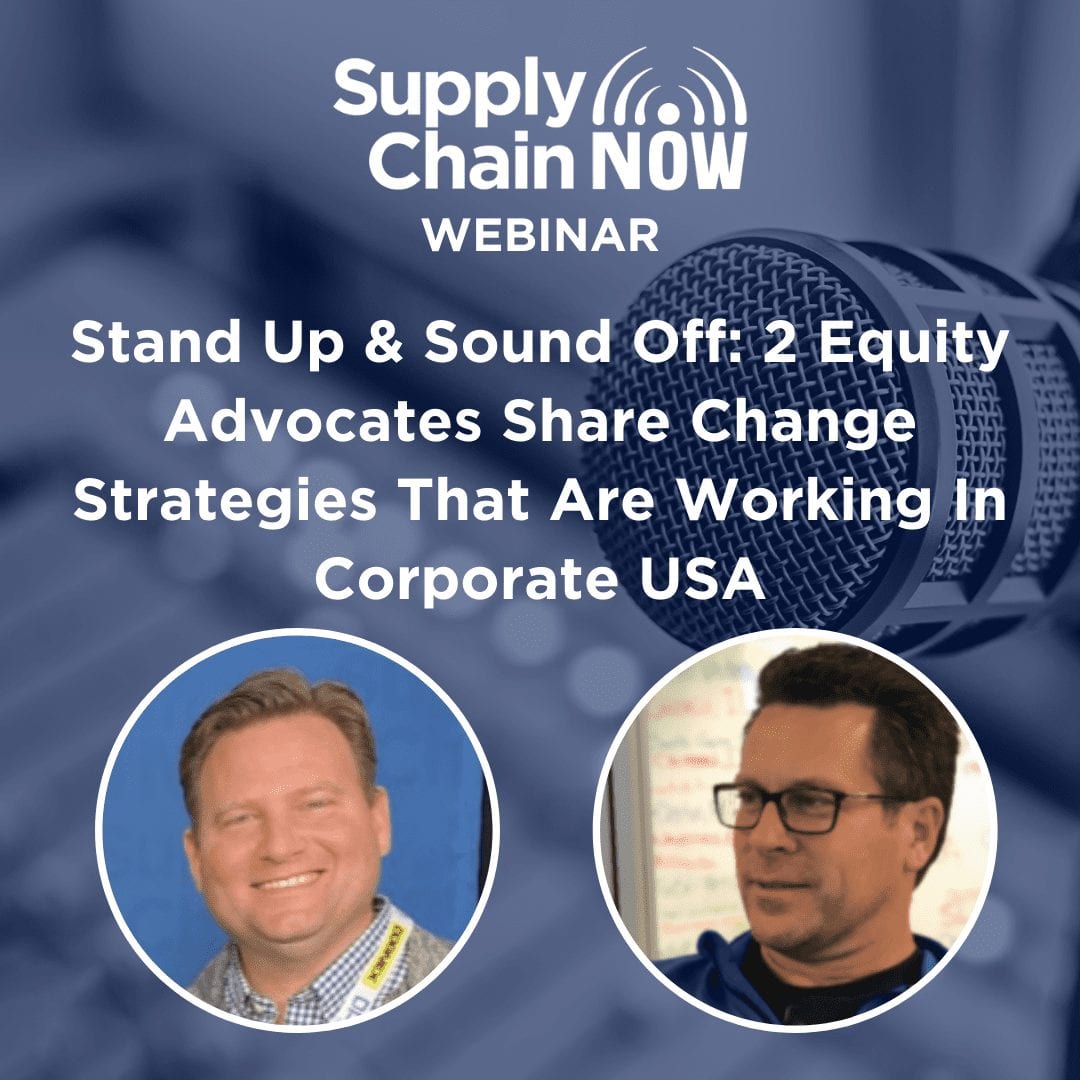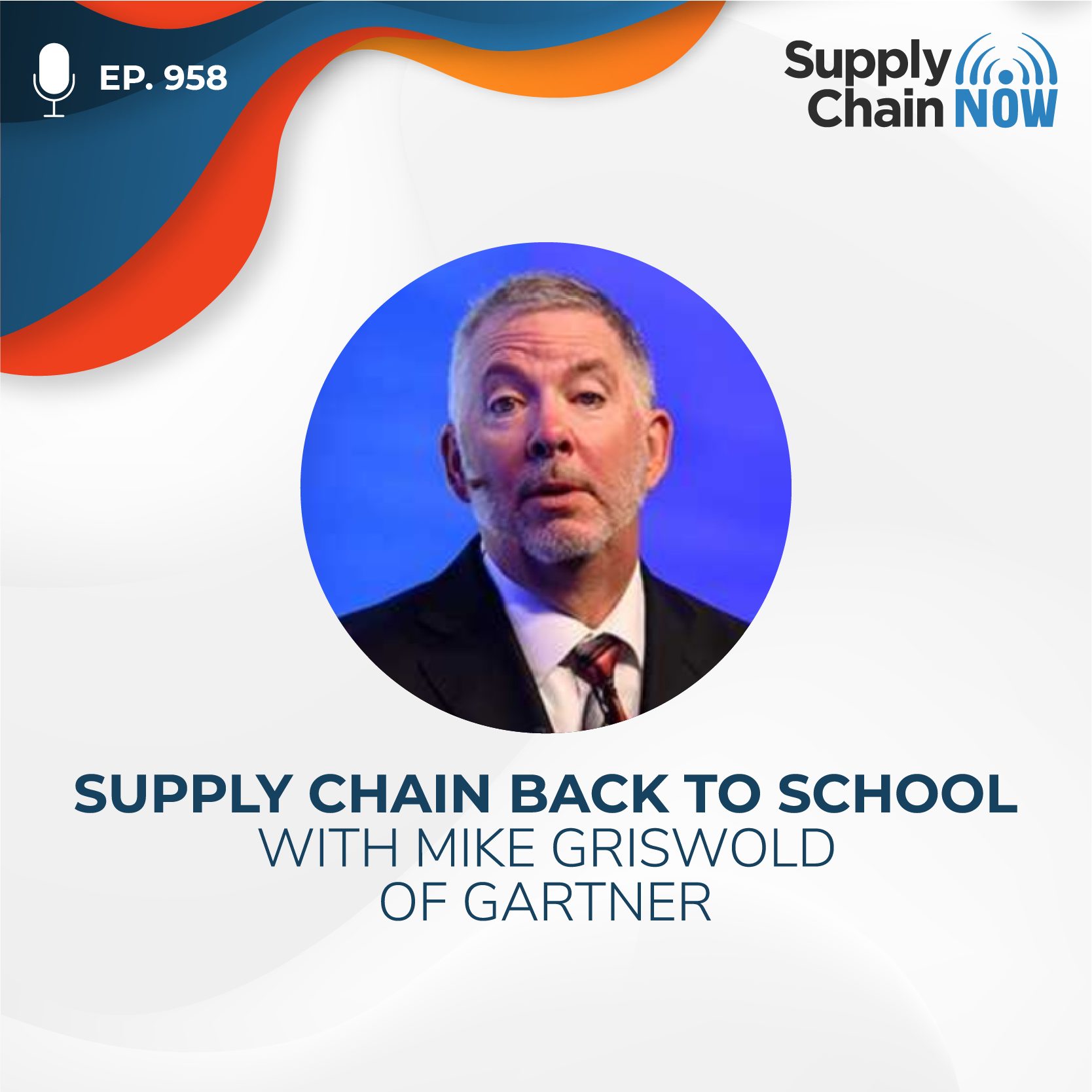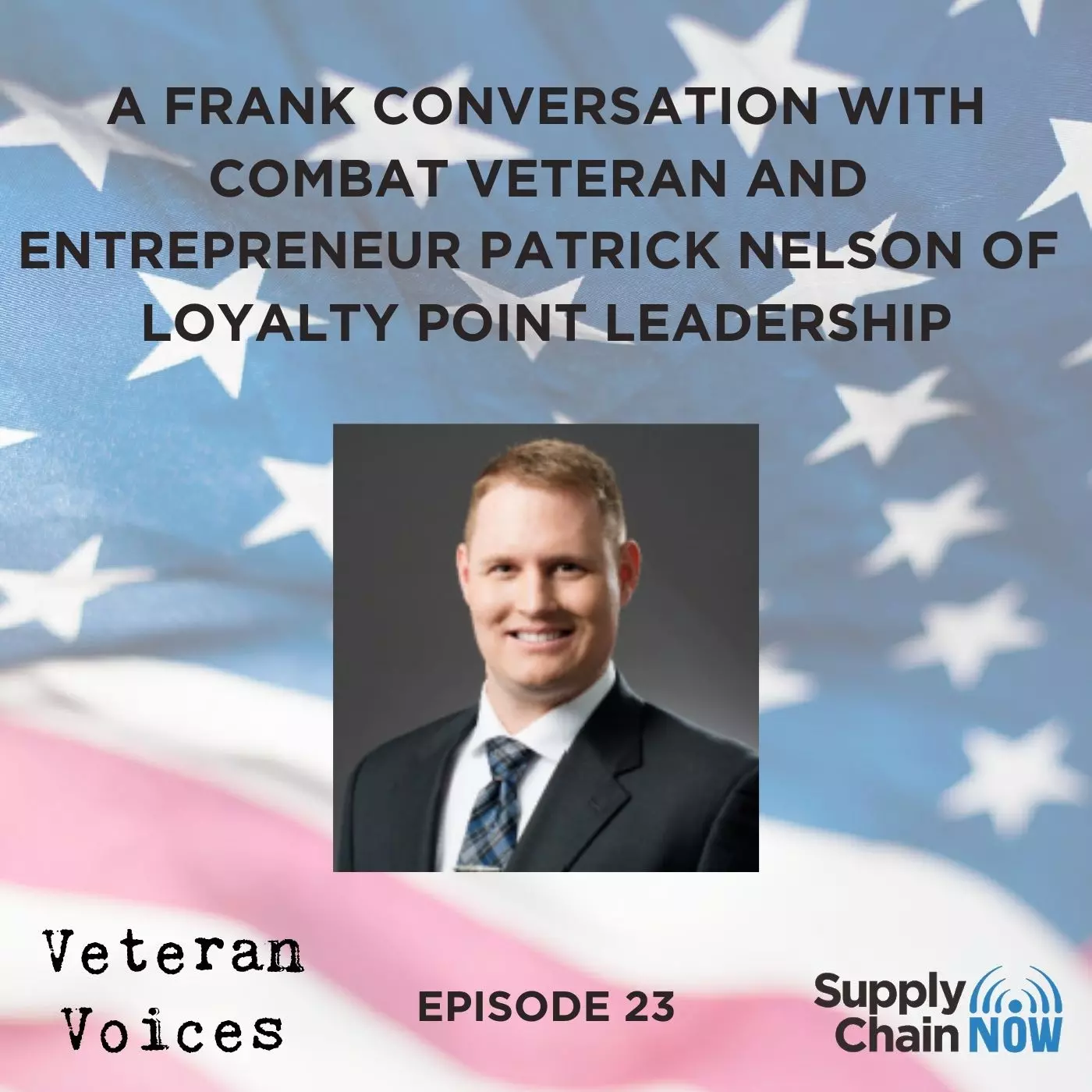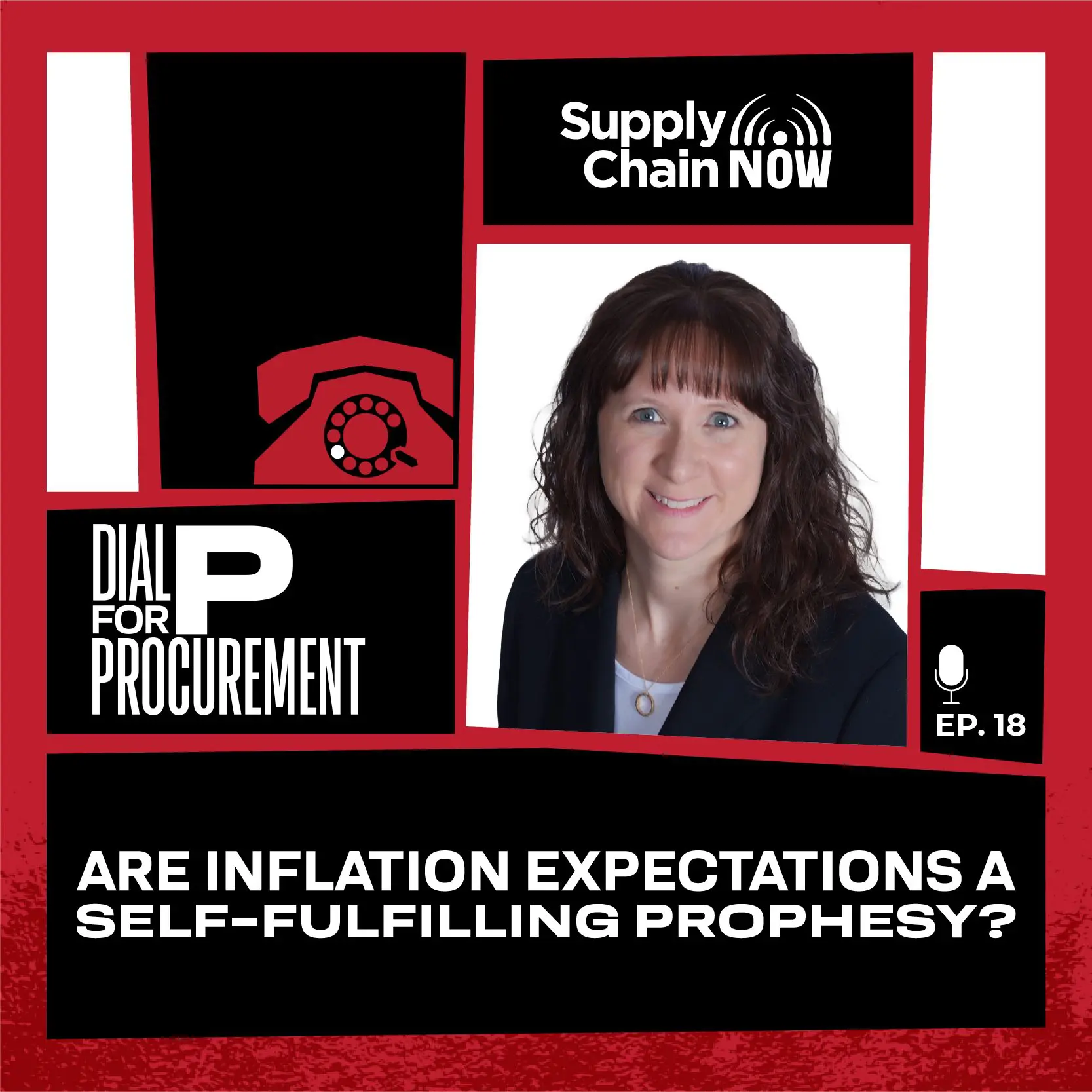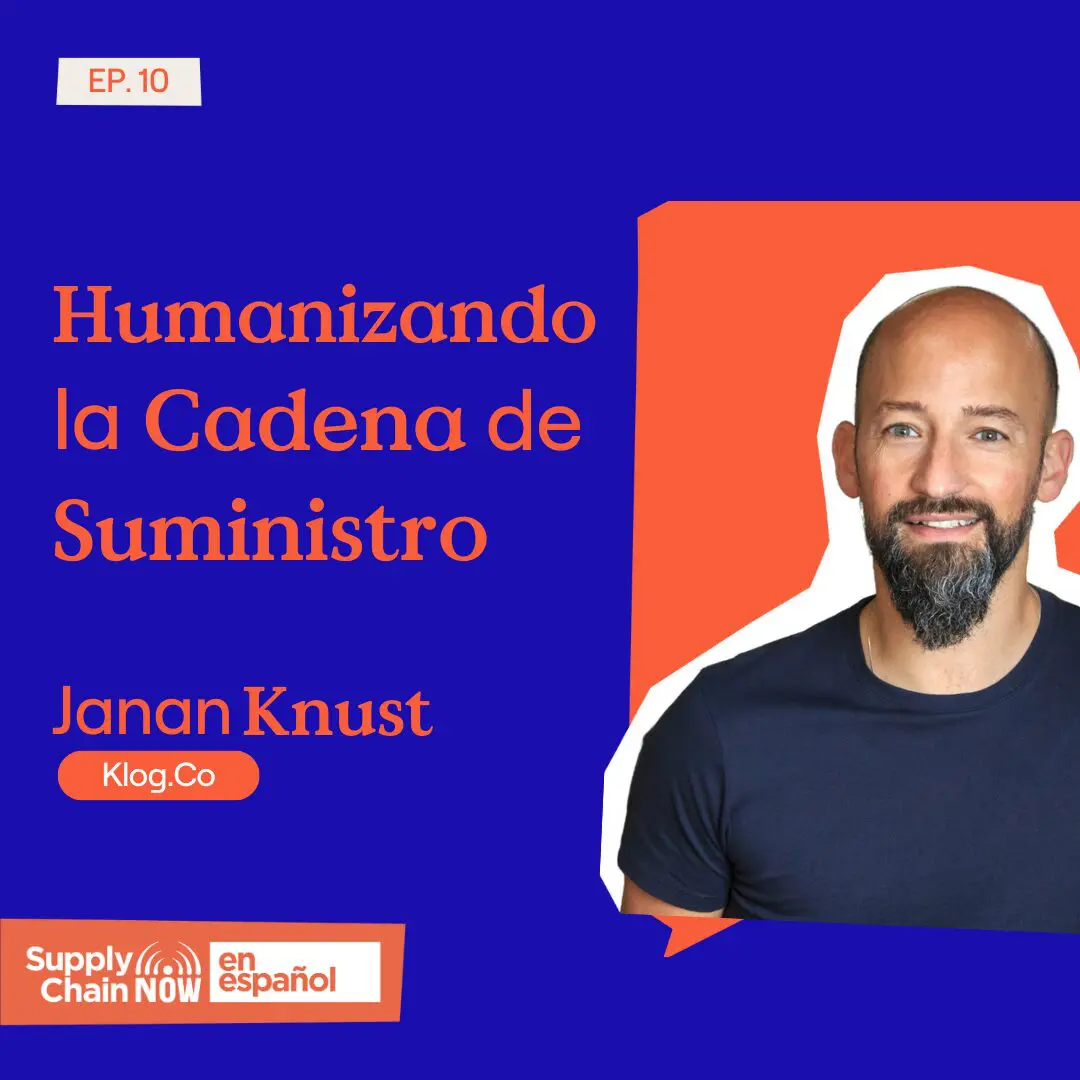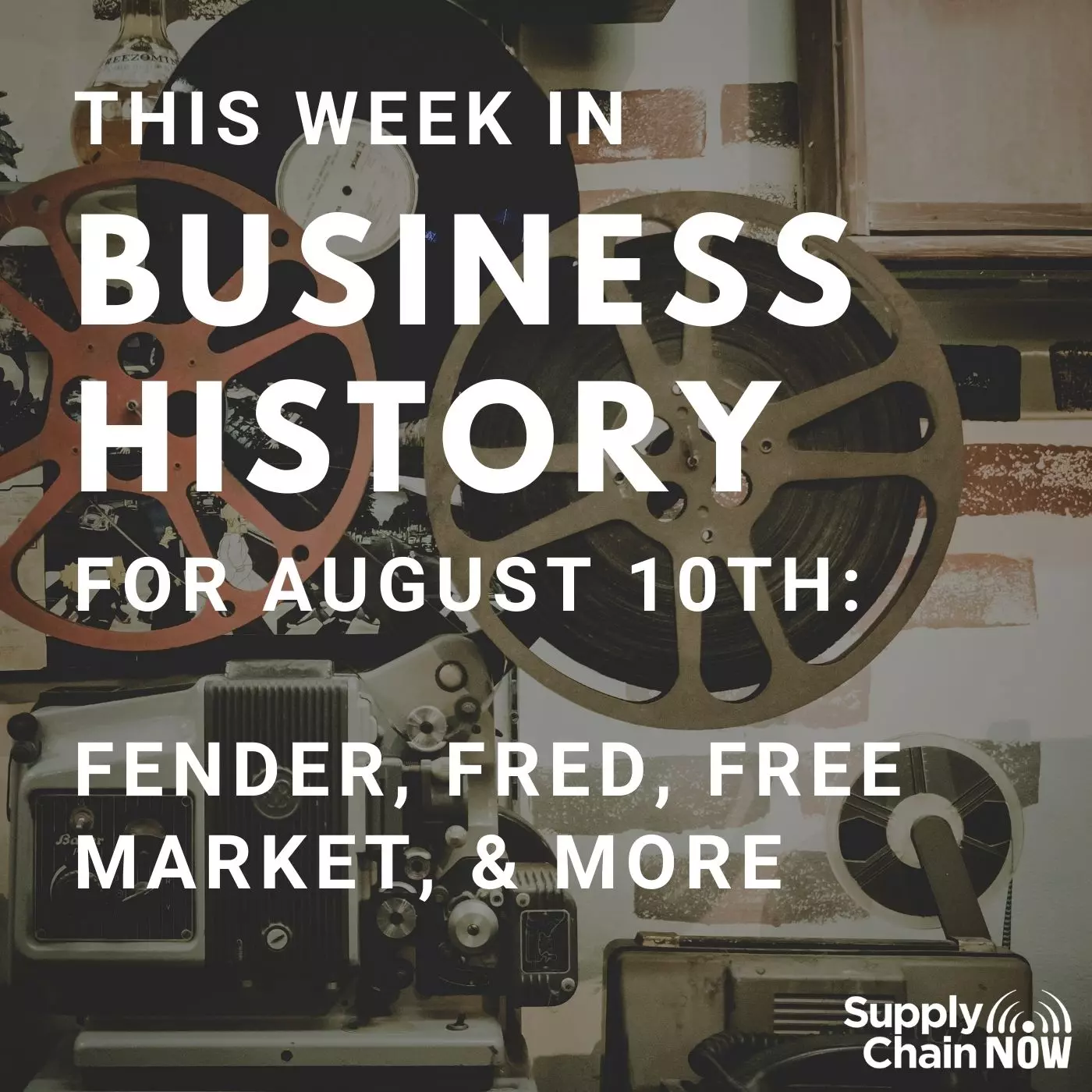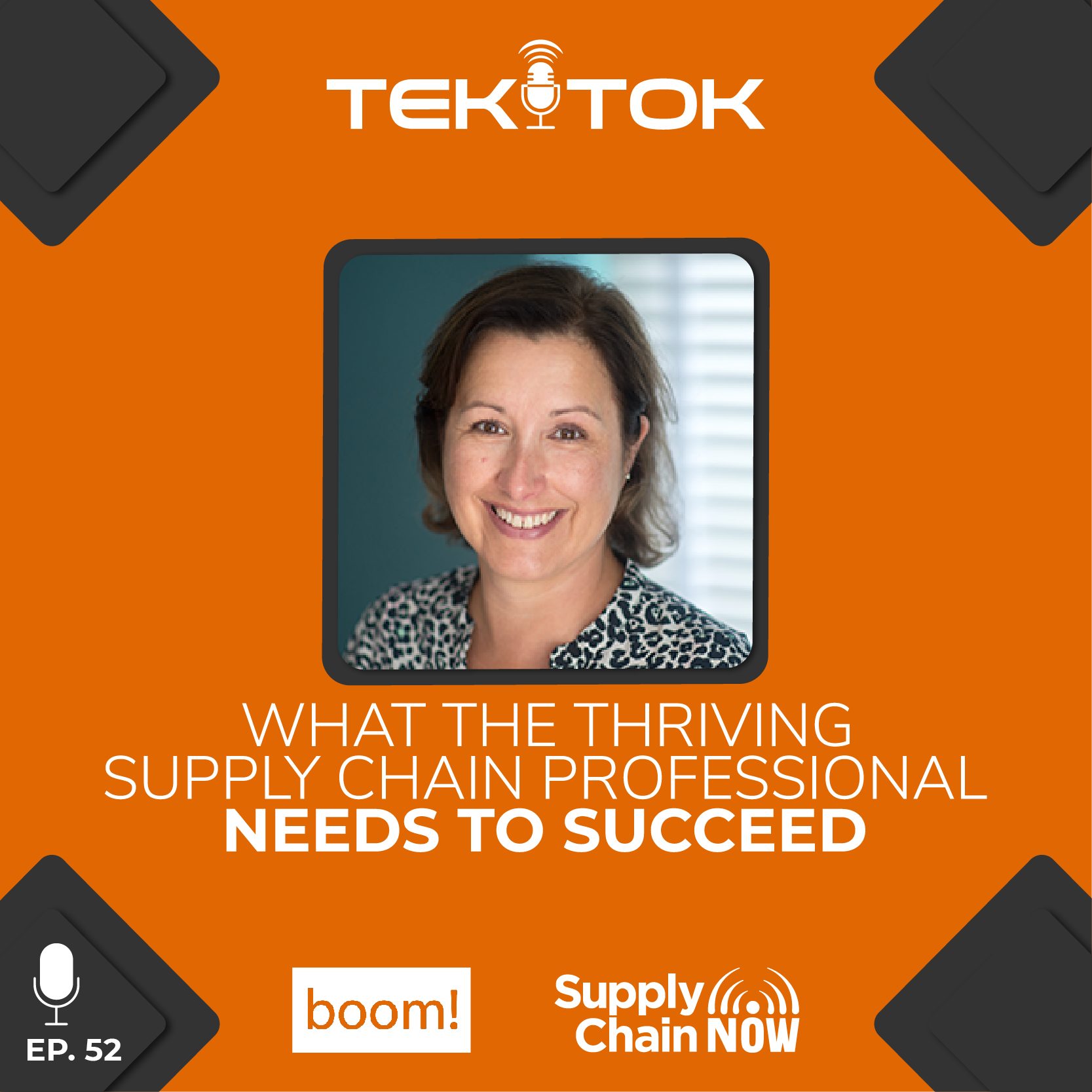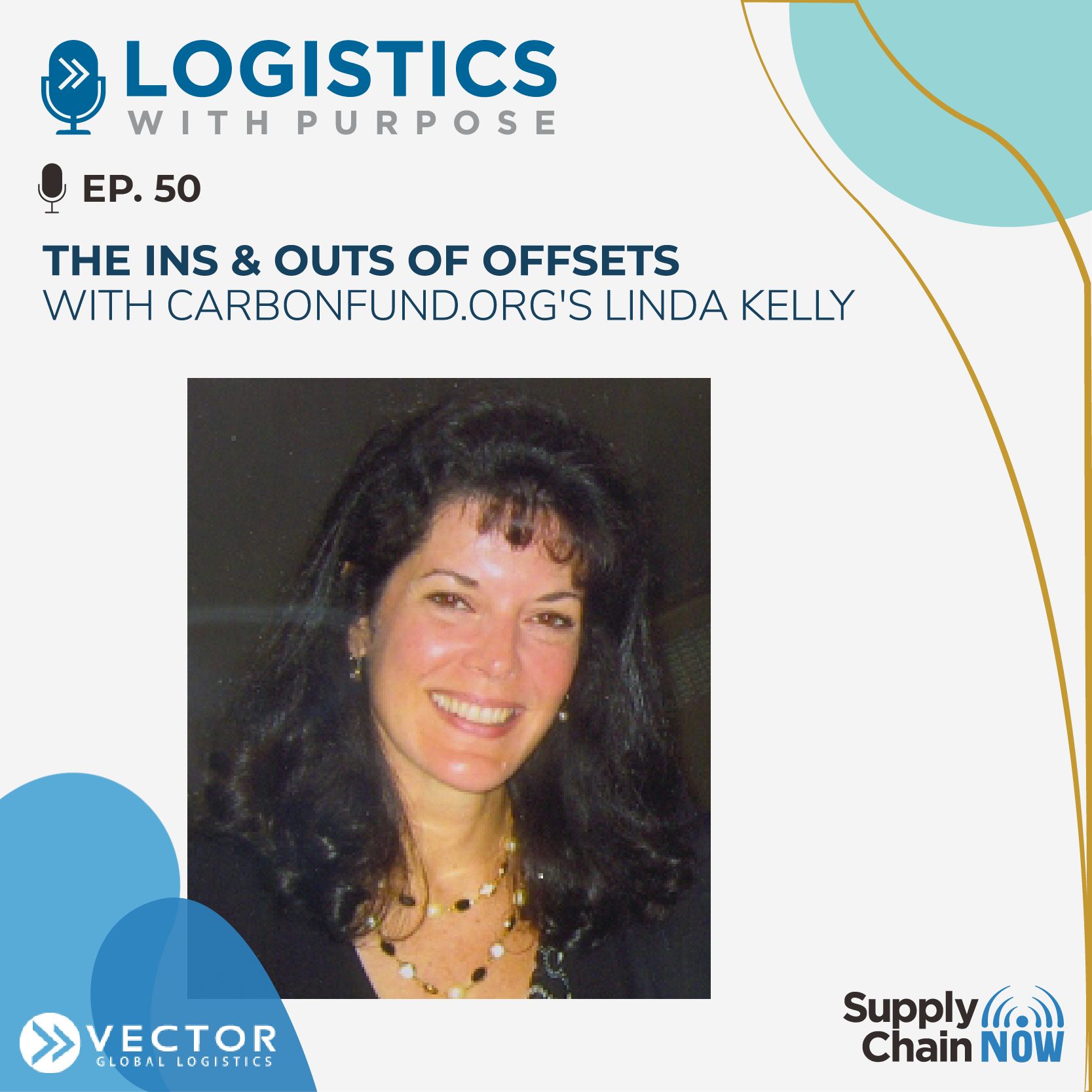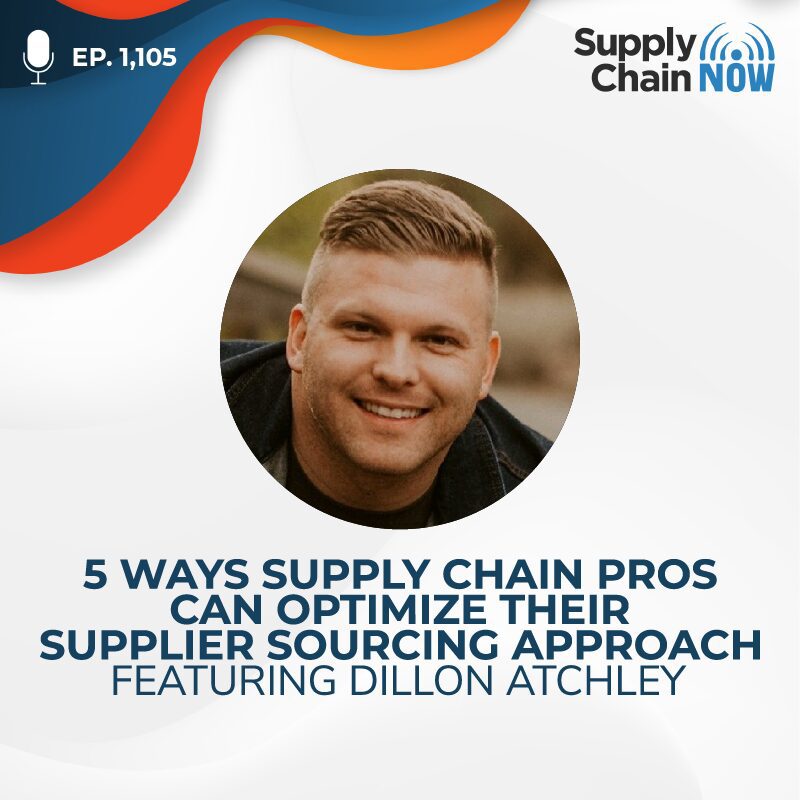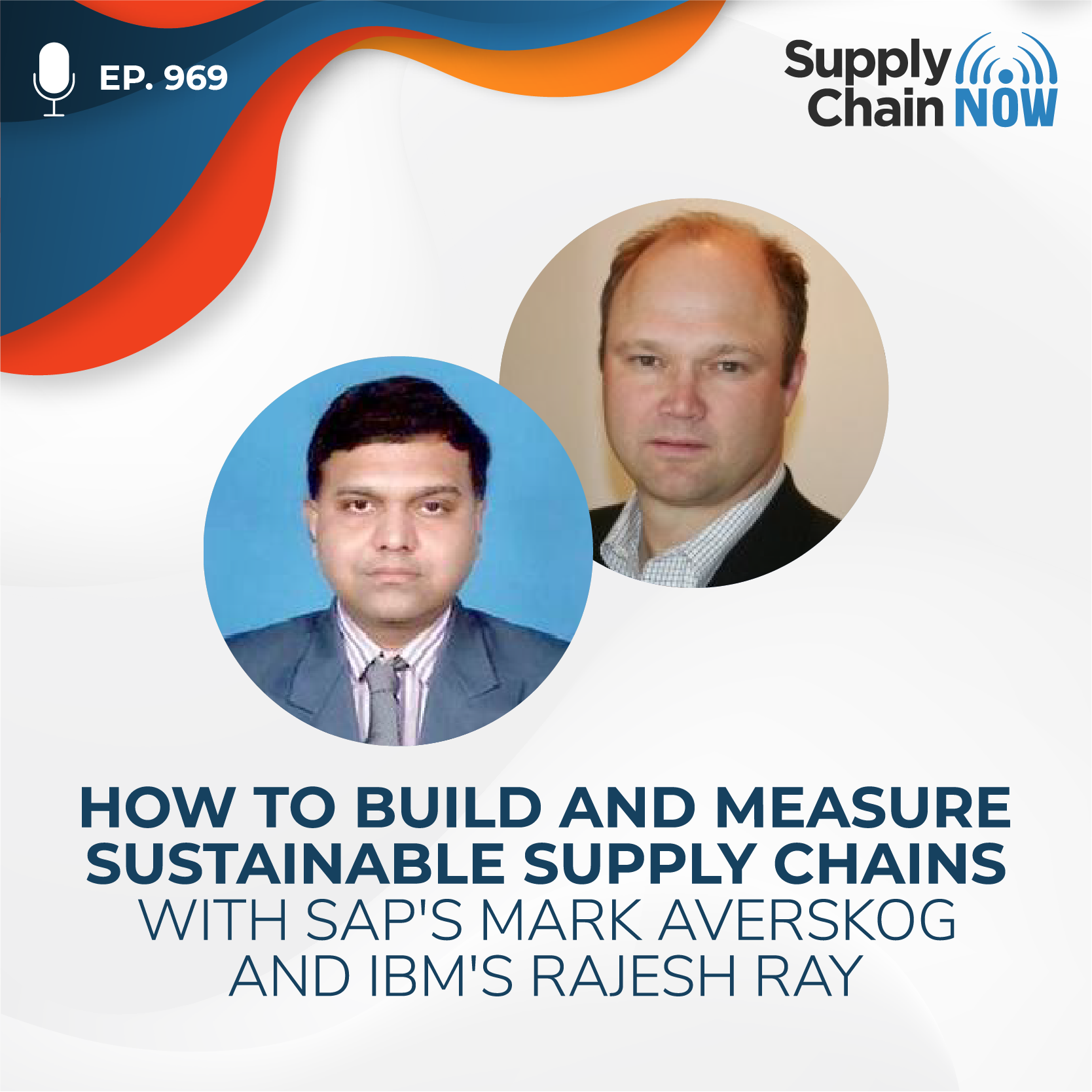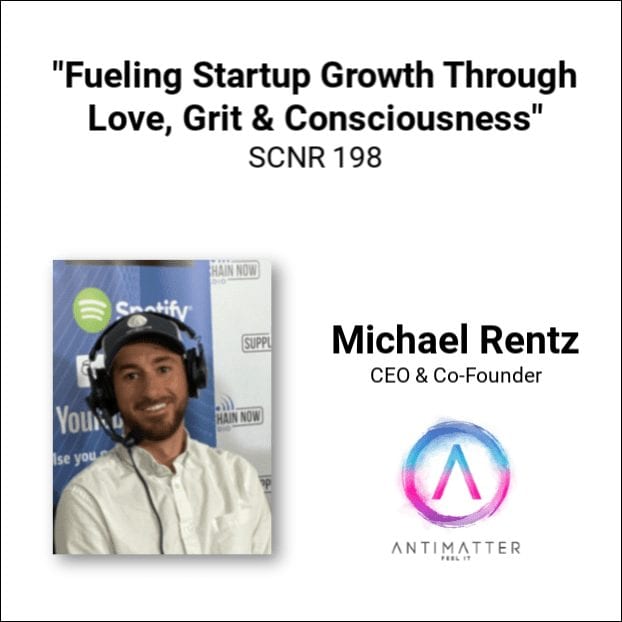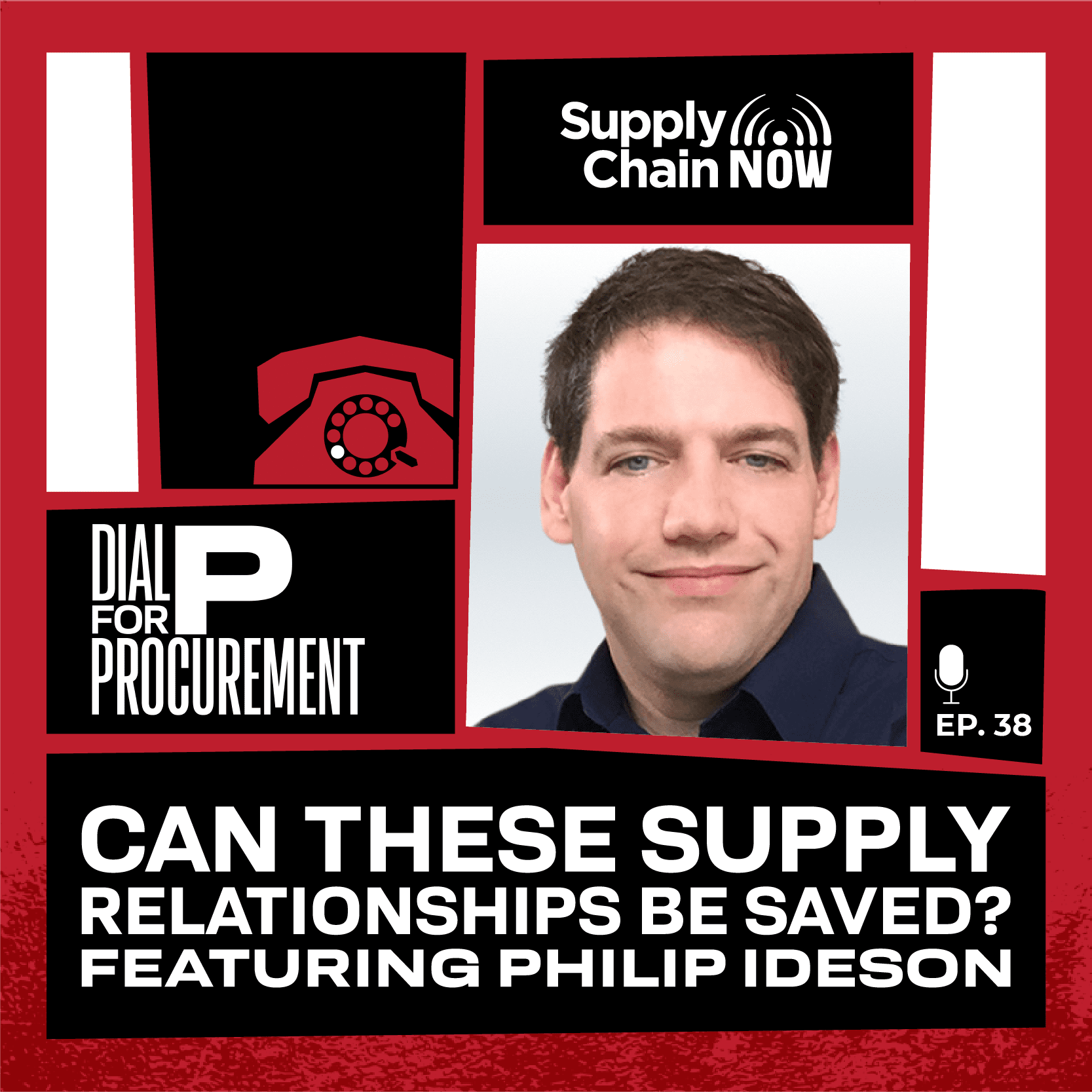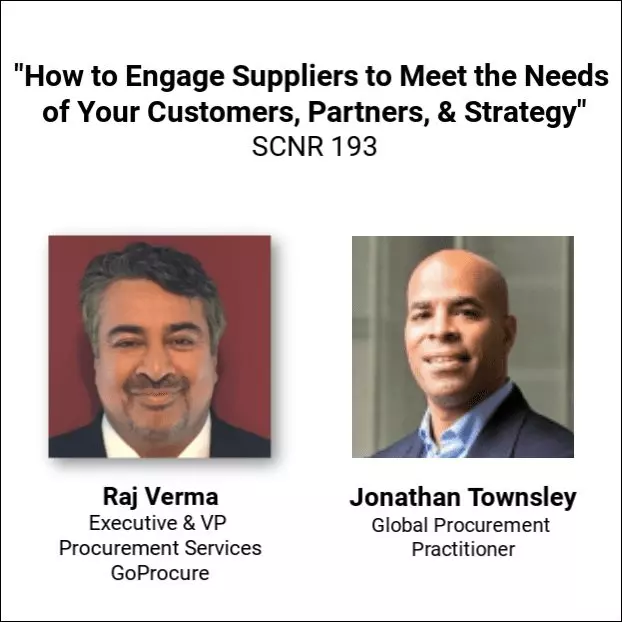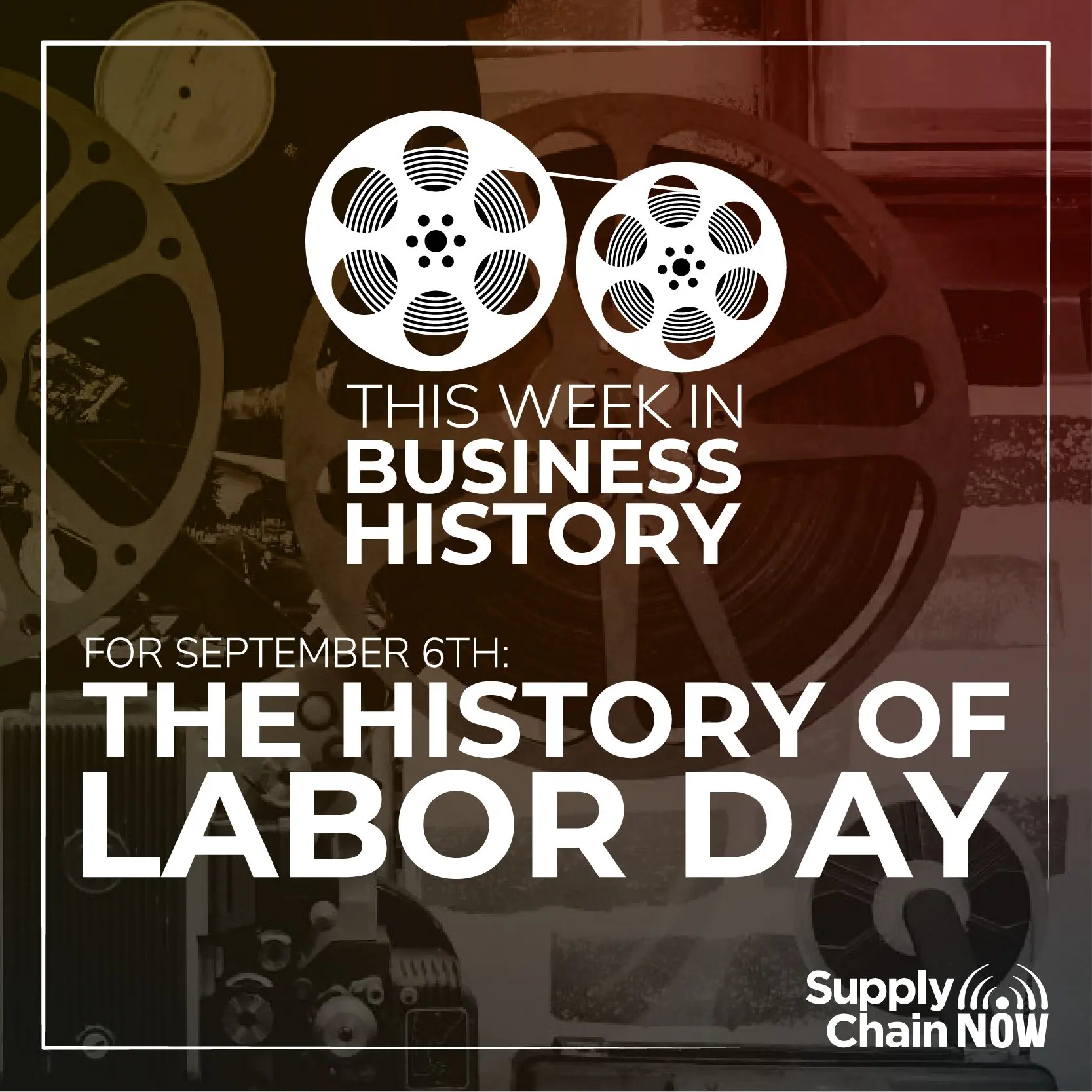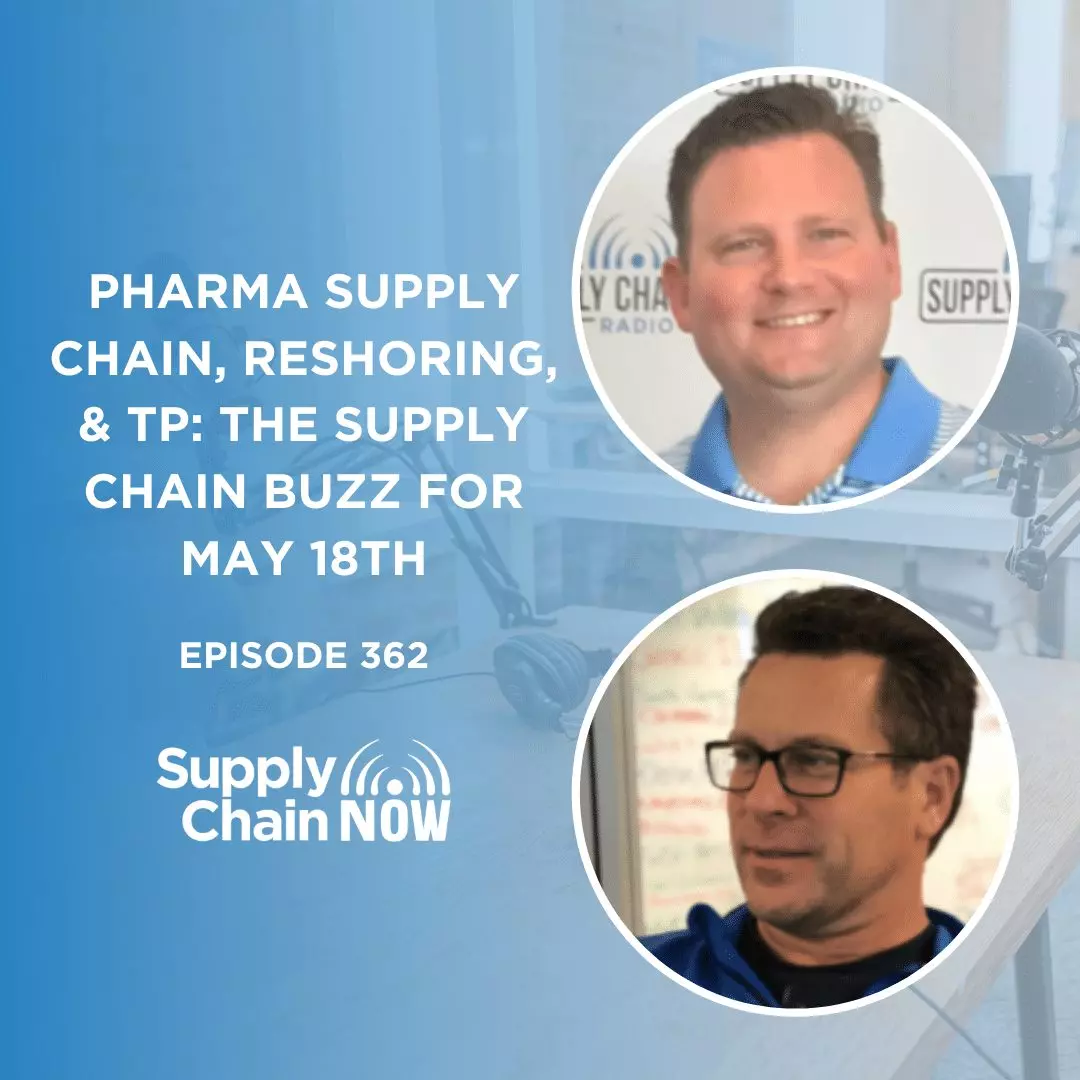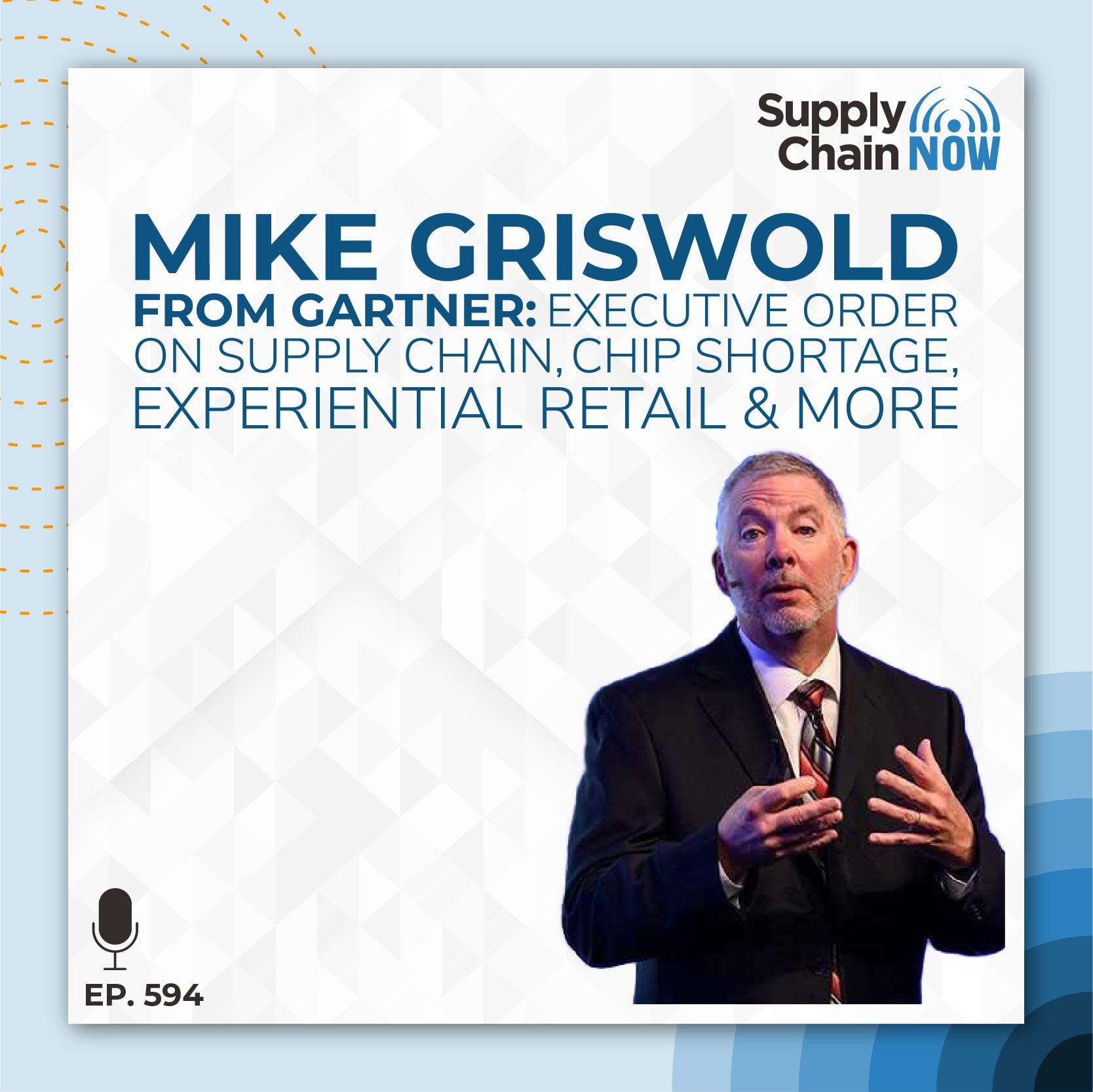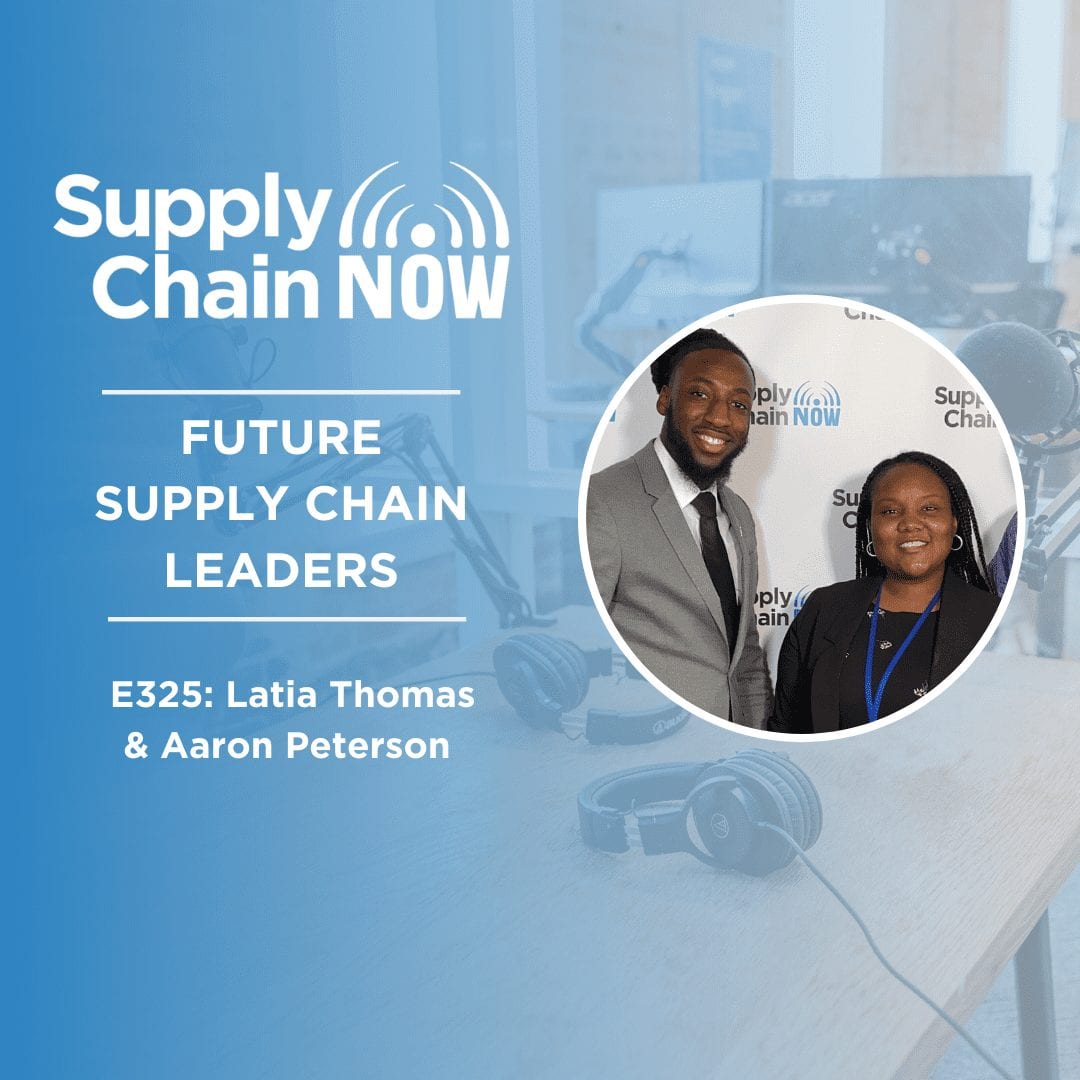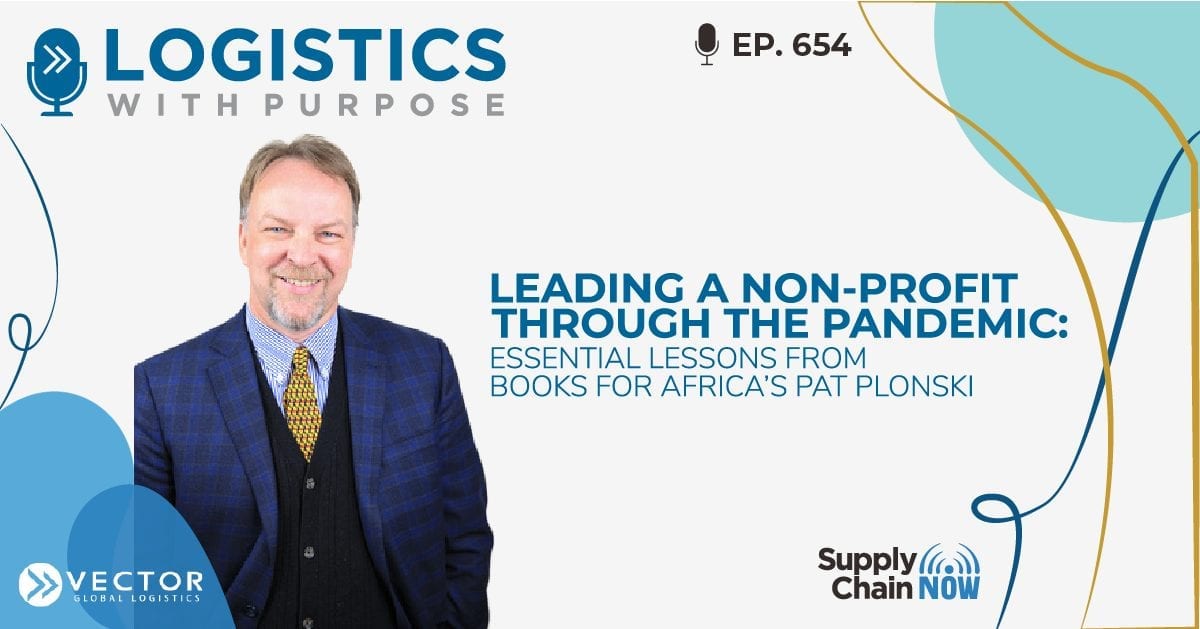
Episode Summary
“Long story short, you want different people who bring different things to the table, and then you want everyone doing what they do best.”
-Pat Plonski, Executive Director, Books for Africa
How do you deliver 2.9 million books that have been donated from around the world to locations across the continent of Africa … during a global pandemic? With Pat Plonski as your executive director. Catch the recorded livestream, produced in partnership with Vector Global Logistics, where we picked Pat‘s brain on all things literary logistics. You don’t want to miss the leadership insights from this seasoned traveler, lifelong learner, and executive director of Books for Africa.
Episode Transcript
[inaudible] good afternoon and happy
Adrian Purtill (00:20):
Wednesday. Welcome. Do another live stream of logistics with purpose. I’m your host, Enrique Alvarez. And we’re going to have a really good show today, Adrian, how are you doing? Good afternoon. Good. I’m good. Thank you. Good to be here. Looking forward to this discussion. Um, yeah, it’s going to be a good one. I love Wednesdays. They’re always actually a good day for me. Uh, and I think everyone’s going to be super excited at, uh, uh, the guests that we have today. And, but before we dive into, into our guests for today, um, Adrian, there’s been for the last couple of months, but more recently as well. It’s been a lot of things going on in the logistics world and in particular with equipment availability and rates and in Asia, it’s been, it’s been crazy. It has, it really has been, uh, it really has been a challenge, uh, to find a space, to find the right combination for our customers of, of, of getting the right that they can live with, uh, and, and the space as well.
Adrian Purtill (01:14):
Um, so, uh, we’ve had some, some late nights, late nights of late with our partners in China, uh, trying to get, uh, you know, space for a big project that I’m, that I’m working on. And the key is just to, just to be persistent and to keep hanging in, uh, because opportunities open up. Um, so, uh, we’ve learned, we’ve learned not to not to accept. No, I agree. Right. It’s just, it’s all about just keeping up, being stubborn, continuing to work hard. And, uh, and hopefully this will eventually eventually kind of, uh, stabilize, but, uh, yeah, big thanks to, to all our partners in Neisha and everyone big things to everyone in logistics these days and supply chain, everyone that’s kind of watching this show and that are participating, uh, with the supply chain community on the supply chain now community, um, good luck and, uh, let’s keep it up guys.
Enrique Alvarez (02:03):
We kind of need to cheer each other up a bit with, with everything that’s going on, but so Adrian, go ahead. Why don’t you start, let us know who we have today and maybe welcome, uh, everyone that’s joining us. Welcome to the welcome to the audience. Um, all faces names and, and, uh, and lots of new people. So welcome to the show. Uh, I show you, you’re going to enjoy listening to and seeing, uh, the executive director of books for Africa, a very, very loyal supporter of Vector global, and, uh, we have, uh, uh, uh, very much appreciated relationship with books for Africa. So without further ado, Pat Plonski welcome to the show.
Pat Plonski (02:44):
Thank you. Thank you so much. Happy to be here. Great
Adrian Purtill (02:48):
Bet. I know you’re in DC at the moment. Uh, would you like to just share with us, uh, the reasons that you
Pat Plonski (02:53):
There I am. Thank you. Yes. A books for Africa has, uh, good relationships with a lot of African countries. And so it’s important to keep those relationships strong. So I have meetings with some of the key members of the African diplomatic Corps talking to the south African ambassador tomorrow, the Zambian ambassador, the Tunisian ambassador, the African union ambassador, and probably I’m missing a few, the Egyptian delegation. So it’s all about keeping those connections strong to make sure that, uh, we’re getting books across the African continent to, to all the countries where it’s wanted and making sure that people know about this program and, uh, that that’s available for them and that we want to work with them. Excellent.
Adrian Purtill (03:42):
That’s great. And, um, you, you hoping to have one of the ambassadors down in your new warehouse in Marietta, Georgia, uh, for, for a good, good party and get together on June 26th? Uh, share a little bit more about that. Yes, absolutely.
Pat Plonski (03:56):
Yeah. We have a new warehouse that we’re opening in, uh, Atlanta. It’s actually already opened soft, open, I guess, soft open is the official terminology, but we’re going to have a grand opening next month in June. And, uh, I have heard, uh, gotten a confirmation from the African union ambassador that she will be available to be our keynote speaker. So we’re looking forward to that. And so I’ll be meeting with her and her staff on Friday and we’ll work out some of the logistics and hopefully the day before we’ll be able to, uh, do some visits in the Atlanta community with some of our key corporate partners that have volunteered in the warehouse. People like Coca-Cola and home Depot and ups and a number of others. And hopefully we can bring her by the vector offices as well to say hello and talk about interactions across the African continent, the African union ambassador, of course, representing the entire African continent, not unlike the European union, um, speaks for the whole time.
Adrian Purtill (04:58):
Brian, we would certainly love to meet her. That’d be very exciting and we’re all looking forward to June 26, which all, so, um, under the show pet, um, tell us, uh, tell us a bit about your professional background and also just where you grew up a little bit about, um, uh, you know, your early days.
Pat Plonski (05:17):
Thank you. Yeah. You know, I’m reminded of something the south African ambassador said a number of years ago, and somebody asked him, how did you get to be the ambassador of South Africa? And he said, I’m here by a series of accidents. And I thought there, there, uh, we all are, uh, yeah, where we are in life, where as I sometimes say, we go where the winds of fate and blow us. So the winds of faith have blown me to books for Africa. I’m very happy to be here. I always wanted to work internationally. And, uh, I sometimes tell the story. I was born on a farm in Southern Minnesota and I’m the hot summer days be working. One of the hottest jobs was pulling weeds out of the bean fields. And so I’d be pulling the weeds out of the bean fields and I would look up and a plane would be flying over and going somewhere.
Pat Plonski (06:09):
And I thought, I want to be going somewhere. Uh, cause it’s really hot here building these weeds. And I love farming. I love growing up growing up on a farm, but I was always interested in travel and, um, and history and, and uh, governments politics. And so here I was born on this farm and, uh, interested in all of these places, which was somewhat unusual there. And so I actually had to get special permission from the grade school to allow me to take time off from recess, which was great. I wasn’t that great to at recess anyway. Uh, so I’d go to the library, uh, in the town and I would get these books about things that nobody else was interested. Things like Greek mythology. Well, in my small town, no one was interested in Greek mythology, but I was interested in history of Greek mythology.
Pat Plonski (06:57):
And so now, as you know, I’m having the opportunity to visit, uh, through books for Africa, many of the places where history was made places like Alexandria, where the great library of Alexandria was built, uh, uh, talking to the Tunisian ambassador, I, you know, may make it to Carthage, uh, uh, Rome where the, some of the UN offices are located. So all in all, uh, it’s been a journey from growing up on a, on a farm in a small town, outside of a small town in Southern Minnesota to, to traveling the world, meeting with our partners and getting a lot of books delivered that’s at the end of the day, that’s how we measure success, how many books, high quality books that we delivered to our partners in Africa.
Adrian Purtill (07:41):
Great. Thank you, Pam. Appreciate it. Appreciate that. Uh, that I’ve reviewed again. Enrica you have, uh, you have a question and before we, of course I’m before we kind of like continue with the story and the series of accidents that it has led us all to be here today. I just want to welcome, uh, Peter, uh, to the show. Peter, always a pleasure having you here Mostafa as well. Uh, Rhonda Rhonda is also another regular. I think everyone’s going to be very excited to get to know more about books for Africa and pat and his story. Uh, Tarun. I, again, this is my second live stream that I actually conduct. And just reading through all these different comments is a lot harder than people might expect. And especially when there’s so many people interested in the topic that we’re going to be covering today and especially it goes, uh, cause there’s great people from all over the world.
Enrique Alvarez (08:29):
So if I missed anyone, we’ll continue to read this comments throughout the conversation with Patrick. But, uh, but thank you so much for joining us for another episode of logistics, with purpose. Um, pat, so you grew up in a farm, you always wanted to travel, you were passionate about books at a very early age, uh, share a story that kind of like shaped you as, as a child, more than just the beginning, uh, uh, farming and picking, uh, on the fields. I mean, is there anything that kind of led you to where you are now?
Pat Plonski (09:00):
Yeah, I mean that, it’s, it’s, there’s so many stories I think, uh, you know, that, that kind of have moved me along, I think, um, with, with books for Africa, that probably the story probably, uh, that comes to mind is I had been working in government. I’ve been an executive director. I was working on a PhD program at the university of Minnesota. And so I heard that this job at books for Africa was available. And so I applied and never thought I’d get hired and promptly, um, left on a, on a program that I had funded to go to Europe. So I, uh, ended up going to Budapest, Hungary. And so what I remember is, um, those were back in the days when it was hard to get internet access all the time. So I was at the ministry of agriculture in Budapest, looking out at the iconic, um, building the whole parliament, uh, which is, you know, if you see pictures of Budapest, you see the parliament buildings and right across the street was the ministry of agriculture.
Pat Plonski (10:02):
So I’m checking my emails. And my, I got an email from my wife saying the books for Africa wants to talk to me and I thought, wow, here I am in Budapest, looking at the parliament at the ministry of agriculture. And I may soon be in Africa dealing, uh, getting books to Africa. So it’s kind of, again, we go where the winds of fate blow us. Um, and the other story that comes to mind, so I did get interviewed and again, I didn’t really think they would hire me. Uh, and, uh, so at one point the founder says, why should we hire you? And I thought, wow. I mean, that’s a great question.
Adrian Purtill (10:35):
Good question. Right. I, that’s what I’ve been trying to figure out.
Pat Plonski (10:39):
I said to them, well, if you want to hire the person who knows the most about, uh, Africa, you probably shouldn’t hire me because I think there are people who know more about Africa than me. Uh, but if you want to hire somebody who gets things done, I’m your man. Um, and the, the name of this program is logistics with purpose. That’s really, I think a lot about what books for Africa is all about. It’s about getting things done and it’s, it’s not always fancy. It’s, you know, it’s, but there’s always a, at the end of the day, uh, we deliver, we deliver the books. Uh, we line up the trucks, we can deliver 20 tons of books working with folks like vector, almost in our sleep. Uh, you know, we’ve done it so often it we’ve turned it into a fine art. And that’s at the end of the day, you have to ask yourself that question, what have we accomplished? Uh, did we get the job done? Did we deliver the books? How many books to who? Uh, and it’s, it’s those sorts of nuts and bolts as I call it logistical issues that are key to our success in key to our mission.
Enrique Alvarez (11:49):
No, and that’s incredible. And yeah, we have had the opportunity to, with you and your team and you have definitely run a tight ship. So, uh, you’re, you’re the man that’s getting things done and, and, and we will continue to support you and your efforts because what you’re doing is great. And so for people that are listening to us, just maybe tuning in, um, what is the history and mission of books for Africa? And you can give us a little more detail. So what is books for Africa for all of those out there that are kind of like have been living under a rock for a year or two? Um, what do you guys do and how do you measure success by the amount of books? So if you can tell us a bit more of the metrics of that success, that would be great books for
Pat Plonski (12:27):
Africa is the world’s largest ship or a book staff Rica. So I always say, you know, everyone should have their elevator speech and I have my elevator speech, and then I have the speech in case the elevator gets stuck in the it’s a bit longer for Africa, the world’s largest ship or book staff. Okay. We have sent now over 50 million books and almost 3 million digital books all over Africa over the last 32 years. Um, we, uh, send books in mostly English, but also out of Paris and French books out of Quebec, we send books out of a number of different locations. Uh, container is leaving in a couple of weeks out of London, um, sort of, uh, those British style books that are, uh, desirable. We’re sending some Somali language books. We sent Portuguese books. We, we aim to deliver whatever kind of books people want.
Pat Plonski (13:20):
That’s what we want to deliver. And so that’s our purpose. And we ship to every single country on the African continent, 55 countries. Uh, now some countries get more books than others. There’s more demand for English language books in some places than others. So it’s all about that. That’s where the logistical element comes in is like, well, how do we get this done? How do we finance it? Do we have the kind of books that these partners want? You know, you know, this is a remote location, you know, are we delivering all the way or are we delivering it to a main port and then, and then they’re picking it up. So a lot of those, those kinds of issues, um,
Enrique Alvarez (13:55):
We’ve been, we’ve been to your warehouse multiple times and it’s always fun to kind of like help the volunteers, uh, uh, I guess sort the books out and put them in different categories. But, so how does the sorting process in the U S uh, work and, and who are you, where are you getting the books from?
Pat Plonski (14:11):
And it’s like a large funnel and everything funnels to Atlanta, Georgia, where I know you guys are. Um, and so what we do is the word is put out that books forever, go once books, the word is out all the time. We always want books. We’ll need 3 million books. We’ll send 3 million books this year. How about we send 3.7 million a year ago? And so to send that quantity of books, you know, we need to touch even more because a lot of them get recycled. So books are coming in from all different sources. Um, sometimes they’re being delivered in our warehouse in Atlanta, uh, or where a smaller warehouse in Minnesota by a shopping bag. Uh, and that’s good. But what I really like is when the semi-trailer backs up, because we need tons of books. And so we work with schools, libraries, universities, but critical is working with large-scale partners.
Pat Plonski (15:00):
People like better world books based in south bend, Indiana. They’re the largest supplier, uh, that we have of university books and library books, uh, groups like Walker, bookstore fall at deliver huge quantities of K-12 books. And then some publishers, capstone learner, uh, Norton, um, Elsevier deliver huge quantities of educational books. He add that all up and it’s a lot of content or warehouses bigger than a football field, and it is full. And so we need to start that. So all the books come into Atlanta soup to nuts, and then they have to be sorted. And about 10,000 volunteers approximately in the Atlanta area, sort, those books every day, uh, some Saturdays and Sundays, uh, uh, and with Coleman that dropped down a little bit, but it’s really picking up. So we need the books, we need to sort the books and they’re sorted by categories, their inventory.
Pat Plonski (15:52):
And then we need to ship the books in that requires financing. So it could be that, you know, the embassy of Egypt let’s say, is funding a container more often, it’s an NGO or a private partner, uh, or, or someone in, uh, you know, a group of Somali cabdrivers, perhaps that are pooling their resources to pay, to send those books to Africa. So, and then all the distribution is handled by our partners in Africa. We had 32 years. We’ve never had any staff in Africa. We’ve just distributed 50 million books, always by, uh, those volunteer partner organizations. So
Enrique Alvarez (16:30):
Incur incredible milestones, incredible goals, and we can hardly wait for what you guys are going to be doing in the future. Cause I’m pretty sure there’s another, at least 50 million books coming up shortly. Uh, but let me, let me interrupt. You use to read some of the comments Hamada says, hi, Mark Preston also says hi from the, uh, he’s the Southern sense. Uh, I miss the, I miss the comment on that. Mark, if you’re, if you’re a fan of martial arts, man, we need to be getting that item as well. So as soon as I saw that my lights eyes lit up. Clay is also here and Scott as well. Who’s, uh, who’s the, uh, I guess, uh, host sensei for, for some of us. Uh, so thank you very much. A lot of comments we’ll keep reading them. And again, I exhort everyone that’s sexually, uh, listening to pat to not only write comments, but also questions. I think that could be interesting and could of course make the conversation more dynamic. And this is what livestreams are for at the end of the, of the end of the day. But anyway, so Adrian, go, go ahead. So certainly our professional lives have been turned upside down, um, in, in the last 12 months plus, um, due to COVID, uh, how has the, how has the business and professional landscape, uh, changed and evolved, uh, for you and for Africa during that time,
Pat Plonski (17:50):
It’s been a challenge that said, we’ve come through it better than I thought we would. We actually had budgeted to lose 2000, $200,000. This year. Our budget is approximately well, 3.3 million, 3.2 million. It takes about a dollar to send a book to Africa, a little less, maybe 80 cents. And when you take all of the books, we spend divided by all the money. Uh, we thought, well, when COVID was coming, we putting together our budget. We thought, eh, maybe we’re going to raise 2.2 million this year, and we’re going to lose about 200,000. Um, it’s actually gone, you know, while it’s been a challenge, it has gotten better than that. So we are, we’re going to be in the black this year. We’re not going to lose $200,000. Anybody running an organization. As I say to my board, uh, I, as your manager, I never want to lose money.
Pat Plonski (18:39):
Uh, that’s not how we do it at books for Africa. Some of it is it’s not a good way to do it. And some of it is a point of pride that we run a tight ship. Uh, so, uh, it financially we’re coming out, okay, we’re going to send about two point mill 2.9 million books this year. Uh, we wanted to send over 3 million as a goal, but this is even, COVID not withstanding it’s our fourth biggest year ever. So, you know, while we’re disappointed, we’re not sending 3.1 million as we hoped and plan to, uh, to send 2.9 million is where I think it’s going to be is, is pretty good. One of our biggest years as our founder, Tom Warren said, though, pat, we can’t plateau. We, we always need to send more. And I agree with that. I strongly agree that that’s how it needs to be because the needs in Africa are so great.
Pat Plonski (19:29):
Other cooler things, just grind to the simple logistics. You know, this is a logistics discussion. Uh, trucks are lined up, uh, to, to, to pick up cargo. We’re ready to go, guess what? The trucks can’t make it because they’re not available or the, you know, or the, uh, the ship, uh, got rolled, uh, for pickup it’s not leaving that kind of stuff. You just need to, uh, sort of stay flexible, stay nimble, uh, and, and roll with it. It’s just, you always gotta roll with it. Uh, COVID not enough books, not enough volunteers, but we’ve just rolled with it.
Adrian Purtill (20:04):
Yeah. Very, very tough. Right. Just go through things and I’m sorry to interrupt both, but, uh, Peter, Peter has a good question. And then an also another comment that I, that it would love to kind of hear your thoughts on, so the, the, uh, the question is, are this donated or new books? It’s, it’s his question? Yeah.
Pat Plonski (20:22):
The answer is both, uh, some of our partners, for example, USA ID partners in particular embassy projects, things like that, that they want only new books with selection by title. And so a lot of times children’s books projects. So we just wrapped up a big project in Ethiopia, sending millions of children’s books, all selections by title. And so, uh, that new books lists of books. And, uh, and that’s all that we need to have that in our work towards something we can deliver other partners, uh, either don’t care whether they’re new or used. And so for them, they might say, well, I don’t care. You know, it’s nice if it’s new, but I need a lot of algebra books and, and algebra books aren’t coming. They’re not available new like that. So we get them from schools and things like that. So it depends what the partner wants. Depends what’s available to us. Sometimes a new book is essential. Sometimes a used book is, is better because the content is more useful than new books. We sometimes recycle new books because they’re not useful in Africa to our partners or there’s too much of a good thing. Okay.
Adrian Purtill (21:31):
Kind of follow up comment from Peter on that a couple of years ago, he was emptying out the house of books and thought he could probably donate some of them to the local library, but, but they said no, that they were all, they all needed in English, not, uh, not in French. Would you kind of mentioned a little bit about the French English problem, uh, and the library didn’t really accept that the books, which she was kind of surprised and somewhat about as well. Um, pet a comment from, uh, mock Preston. Uh, is there any vision of the digital world catching up to the book business plan for platform and return on investment?
Pat Plonski (22:06):
Yeah, we digital, we get asked that question a lot. I’ve, I’ve been here almost to 18 years at books for Africa 19 years that question’s been asked since every one of those years. Uh, the answer is 80% of the books, uh, that are, um, being read are still read in traditional formats, uh, in hard copy format. Why is that? Because they’re cheap and they’re durable and, uh, people still like that tactile element, uh, you know, uh, ha having, uh, you know, I brought my Kindle with me. I read books on Kindle too, but there’s like the tactile element is still important, especially for educational books. Uh, so, um, in fact, I just posted something on LinkedIn, uh, an hour or two ago, the St. Paul, Minnesota, where I’m from just, uh, indicated that they’re spending $500,000 a half, a million dollars to up grade, uh, buy more books for their kids, for the students in St. Paul. That’s just kind of the way it is that, uh, while, uh, digital books are great and they have a role there’s still also huge demand, not only in Africa, but in the United States for traditional formatted books. Again, 80% of the books are still, uh, used in that, in that format, but we do, but we provide digital books. Uh, we send, like I say, we sent, uh, almost 4 million digital books loaded onto tablets computers. If people want them, we have them
Adrian Purtill (23:34):
Available, uh, peanut hos what’s the balance between new and used.
Pat Plonski (23:38):
Good question. It’s um, I would say about, um, um, three of what we send is used and probably twenty-five percent is new, approximately differs from year to year, um, Elsevier, the great publisher of medical books just delivered five semi-trailer loads. Um, that was great. Um, and we’ll get those out. We got offered, um, five semi-trailer loads of Spanish books, um, brand new. Uh, I, we had to turn those down because really, uh, we wanted to get some to, uh, to Equatorial Guinea, which speaks Spanish. Uh, but you know, sometimes that’s how it goes that that sometimes new books are offered and sometimes you want them, and sometimes they’re, they’re less desirable. So it’s not always about that new books are better, but we’d like to have high quality books. It’s quality is they need to be durable, that can’t be all beat up and they need to be the right topics. Um, I’ll, I’ll say though, this, a lot of the university books we get are also quite new. So for example, students right now are ramping up their years here in the United States, they’re donating their books. So a book that a student was using this month in may, we can have that to Africa in two months, it might be used, but it’s the exact same book drive. And so very high exactly, uh, that
Adrian Purtill (25:05):
I think, uh, make, uh, McElligott, uh, excuse me, if I’m, if I’m not pronouncing that correctly, but you just, you just asked the question, uh, use means an old version. So I think the, there you have it, uh, it can still be a current current version, I guess seems strange to say, but if, if there is a, if there is a positive at all, that’s come out of, uh, the Coburn COVID environment that we found ourselves in. Uh, it’s the fact that a lot of companies are now turning toward to have remote remote work. Um, I must just say that, uh, Vic can be very, very proud that we started the company, uh, based on that philosophy and have made it work very successfully. So a shameless plug for us on that score. But, um, I know that I know that books for Africa, uh, you change do the remote work. Uh, my steering’s delight, I must add, uh, last year. Um, how did that decision come about? And, um, and, um, how many benefits have you, have you found as a result of that decision?
Pat Plonski (26:02):
Yeah, I have all, I’m an old school, probably more than I even wanted to admit my colleagues probably say I’m more old school than, than I should be, but, uh, uh, so I, I’m the kind of guy who likes to go to my office and everything’s there. So, you know, there’s my computer, there’s my paper files. There’s the emails that I printed off. And that’s kind of the way that I’ve operated for many, many years. And I prefer it that way. Well, COVID occurs. And by force of necessity, we all need to home office just like I’m sure many of the listeners here, and guess what, uh, you know, I can set up an office at home. That’s just as efficient and I can have my files there. And maybe, I guess I don’t need to print off so many things. And it actually worked very well.
Pat Plonski (26:45):
I did not expect that it would, but if you have a properly set up home office, uh, you know, it can be very functional. Um, we had the situation in books for Africa where we actually have three footprints. So we have a large warehouse in Atlanta, a smaller warehouse in Minnesota, and then we had an office in Minnesota. So the lease was up on our Minnesota office and we thought, well, okay, we’re paying for space that we’re not using. Let’s just close that down. We’ll consolidate the warehouse in the office and we’ll use that on occasion for meetings and, um, you know, and things like that. So, uh, so that’s what we did. So, uh, we closed the office in Minnesota, uh, most of the Minnesota office staff, our home office, but then we do, I go there to the warehouse office at least once a week sign liners. And I think, you know, when COVID abates, we’ll have our meetings there. So it’s really the best of all worlds to have a warehouse office, uh, that you can use as need be. Uh, I think a lot of other organizations maybe have the issue of, they maybe have longer term leases if you’ve got three years left on your lease and you want a home office, um, that’s, that’s a tricky situation.
Adrian Purtill (28:00):
Right, right. Um, I know that it is, I’ve been reading a lot of surveys, uh, of, of late, um, and, and, uh, and articles on people returning to the workforce if officers are still open and operational. And it, it seems like the general consensus is that, uh, is that staff would be, uh, would be happy with going back maybe twice a week. That seems to be, uh, kind of what, um, you know, what I’m reading across the board. Um, and Rica has a question. I know, but before we get to that, um, Eduardo, can we move to welcome to the show? Uh, McElligott welcome to the show. Uh, [inaudible] uh, great to see you again, welcome to the show and I’m Enrique over to you again. Yeah. And, um, before I ask you my question, uh, demos, uh, welcome again, I actually had the pleasure of interviewing demo’s he’s in Panama and, uh, yeah, he’s an expert when it comes to Latin America.
Enrique Alvarez (28:53):
So if you have any kind of questions or thinking of doing anything in Panama or Latin America, I would definitely reach out to them most, uh, on LinkedIn. But, uh, so Patrick, um, go, you know, Africa fairly well. You’ve worked with Africa for many, many years. Um, could you give us one or two kind of stories that could be interesting or funny, or just some stories that you think are actually a good way of, uh, I guess not summarizing, cause you can generalize things that quickly, but something that kind of helps our audience understand how challenging, uh, your logistics and your supply chain really is, especially because you’re trying to help people in this very remote and complex regions of the world,
Pat Plonski (29:34):
A story that immediately comes to mind and this sort of illustrates that digital transformations that we’ve seen over the last, uh, years and decades is when I went first, went to Africa some 18 years ago. Uh, you know, you could, uh, you know, have email, but, but really when I went to Africa, uh, it was, I was like, I’d be gone for two or three weeks. And I was largely out of communication with my home office or my home. And so it would be occasional phone calls. Uh, there were these, uh, cybercafes, you’d go there and you pay for whatever 30 minutes of time or whatever, but the, the bandwidth was such that it was really slow. So maybe you’d go and be able to respond to two or three emails. Uh, it, it was just a really difficult, yeah. I mean, it would just wait for ever.
Pat Plonski (30:28):
It was so slow. Well, compare that to now where even, uh, a rural hotel in rural Africa will have wifi and you don’t need to go to a cyber cafe, you can pull out your phone or your laptop, and you can be in quite, uh, easy contact with home, uh, your home office or people across the world that has been a dramatic transformation, uh, across the world. And, and across Africa, even in very remote areas, you know, hard to find a place in Africa, almost like a hotel that, that wouldn’t have, um, that, that wouldn’t have, um, wifi now.
Enrique Alvarez (31:11):
Yeah. There are X exponentially, right. Kind of transforming the cold continent and every single country, uh, uh, with this digital transformation. And we love that kind of a new way of describing the change.
Pat Plonski (31:24):
Some, some people are going to say, Hey, wait, pat, there’s a lot of, I’ve been to Africa. Some villages don’t even have the electricity. So yeah, that’s an issue too. And I think that’s part of the divide is you’ve got on one hand, you’ve got villages or, or let’s say a library that doesn’t have anything, no email, no nothing. And then you have people very close by who, who in the country, you, the next town over, who are able to have wifi and they can communicate with the world. And so it really is situation of the haves and the have-nots I think. And so part of our goal at books for advocates to equal that playing field to have more hands. Yeah.
Adrian Purtill (32:03):
Right. Absolutely. Right. Right. Tell us about the, uh, container, uh, container captain program, uh, that you haven’t been running for a while.
Pat Plonski (32:12):
Yeah. That’s a great program. When I came in, I’m always looking at things for a rear through a rear view mirror, as you can tell. I, I studied, I have a couple of degrees in history when I came in at books for Africa, you know, there was a, you know, we were under a half, a million dollars and a total budget and there were questions, well, how are we going to, to continue to survive because the fundamentals were changing. And so what we came up with and really accentuated was the outsourcing fundraising. And so the, the funds that are raised at books for Africa, about half of the funds are raised by people sending containers to specific places. And so many of those containers are organized not by me, in my staff, at books for Africa, but by someone who might be in Atlanta or Cincinnati or Los Angeles or London or somewhere else, it’s not my project, it’s their project.
Pat Plonski (33:15):
They’re raising the funds to send books to a specific place. And they sort of view us as a vendor. And they’re very excited about that project. They know the recipients maybe. And so that’s the container captain project that person who’s running, organizing that effort might have resources, or they may have, they may be a person with very little money at all, but they’re marshaling the resources of their colleagues, their churches, their rotary clubs, their mosques, whatever it is, and, uh, raising the funds. And then they hit the target. They send us the funds and then we organize the shipment and, uh, give you find folks that affect her a call and say, we’re ready to go. Uh, that container is ready to go to Maui. And so for example, um, one of the projects we’re working with now is, uh, everybody’s heard the story of the boy who harnessed the wind.
Pat Plonski (34:06):
Uh, the boy from Malawi, he, he, um, uh, couldn’t go to school, didn’t have money to go to school. So he went to the local library. He got, um, he was interested in, uh, solar or solar wind power. And so he set up a windmill in his village and created, um, opportunity to, to charge, uh, you know, for his home, uh, to get electricity for his house. And then later the whole community. Well, that story captured the imagination of a lot of folks. And so he has a nonprofit and guess what they contacted us and they want to send a container of books to Malawi and, uh, vector, you guys are hauling it, I think in a couple of weeks there.
Enrique Alvarez (34:48):
Well, that’s a great story, right? Uh, how, cause it was a video. So this is all because of a proactive approach of a young person in Malawi that had the idea of actually not kind of, um, conforming to the norms or to whatever his environment was and trying to change it. And it kind of went back to, you went back to your donors and then all of a sudden, he not only got electricity for his house, but, but then a lot of attention for his whole community. And that one person is making a big difference. I have a quick, quick question from Christy Porter. And by the way, if you, uh, have you have anything, uh, related to marketing, she’s incredible. So you should contact her. What is your advice for nonprofit leaders who need to engage stakeholders at a distance in Kenya, meet in with them or hold events?
Pat Plonski (35:39):
Great question. Uh, you know, books for Africa is a global brand, a global organization. So many of our donors we haven’t met with. And so, uh, in fact, I was on a board, um, for an organization working in Adrian, working in South Africa, building schools and, and, uh, we were going through the donor list and I said, as a member of the board, I said, what we want as an organization is to have so many donors that we don’t, we can’t meet them all. We don’t know who they are. We that’s what you want. You want to have so many donors that you cannot connect with them. And so obviously we connect with them in other ways. So, you know, you want a good brand first and foremost, you want to have a brand that, that resonates. Um, I think books for Africa is a great brand, hopefully, and it says what we do.
Pat Plonski (36:32):
And then when you communicate with your partners in a variety of different ways, you want to do it in a, in a very thoughtful way. So in, in different messages, not always the same message. So, you know, sometimes it’s about the books. Sometimes it’s about our partners in Africa. Sometimes it’s about the boy who harnessed the wind. Uh, you need to capture the imagination of your donors so that they get excited. And I’ve always found with the different organizations I’ve worked with that. If you can get people excited, good things always happen. It always starts with that. Got to get people excited.
Enrique Alvarez (37:07):
Yeah, that’s a, that’s a really, really good point, very powerful. And Peter Peter shared that. That was a good question. And I’m sure that it was a very good relevant answer to the question he runs a non-for-profit charitable foundation. Peter, I didn’t know that. That’s awesome. By the way, congratulations to you nor says hi and Mark Preston, uh, Mark Preston, great mission and work. Thank you for making a difference in this world. Lots of similar comments. So, uh, thank you pat, once again, uh, we all know that you have a really good team. Uh, we all know you have really good leadership and you get things done and you’re operationally speaking very efficient, right. Um, but this of course is you have more people involved in this. You have, uh, the experience and knowledge of the board and the project directors and the ambassador circle members. Could you tell us a little more about how this team of advisors or board members who were ambassadors as you call them, uh, kind of guides you and books for Africa through, through everything that you guys do?
Pat Plonski (38:13):
I think the important thing, great question. I think the important thing is that everyone does what they do best. So I have a great team and you know, they’re great at things like technology. So like, uh, Travis manages our Salesforce and Chelsea they’re fabulous at it. I can’t manage that database. Uh, I can use that database when I need to say, gosh, I can’t find Adrian’s number. Uh, I’ll go onto Salesforce and find it, guess what? Uh, it’s, it’s right there. But you know, so you need people who can manage your technology. Uh, I’m, I’m not the best person to be lining up steamship lines, Enrique, you, you and your team are. So we don’t try to arrange the logistics of arranging trucks and steamships and everything. And dealing with ports. We outsource that to, uh, people like vector logistics, uh, books. It’s great to, you know, if I knew every book donor, that would be awesome, but it’s much more efficient to work with one or two.
Pat Plonski (39:17):
So we have partners who collect the books and I work with them and sometimes pay the trucking it’s way. You get way more books that way at the end of the day, I’m for what works in terms of board, you know, different people bring different things to the table. So we have a number of African board members, maybe 40% of our board is African, um, diaspora members. They’ve got great connections in Africa. They understand the African context. They bring that to the table. Uh, me I’m meeting, you know, I’m, I feel like I’m the concert master. I don’t play any instruments and sort of conducting, uh, so, uh, you know, I feel like I’m, in some ways I’m an imposter, but, uh, I guess someone has to do it. So, uh, and then in terms of supporters, donors, you know, donors want to be involved.
Pat Plonski (40:07):
Sometimes they want to be very involved. Sometimes they just want to provide financial support. And then lastly, like I’m here in Washington, DC tomorrow, I’m going to meet with the Zambian ambassador and the African union, uh, ambassador on Friday with them. It’s about marshaling their support, uh, to India to provide us with input. What kind of books are useful and to, for them to convey to, uh, their constituencies, Hey, this is an important program, a good program. It adds value. Uh, the Zambian ambassador is the honorary chair of what we call our some society, which has all of our top donors. So we work closely with him to, to connect. And so long story short, you want different people who bring different things to the table, and then you want everyone doing what they do best. You don’t want someone like me handling technology. For example, you want me do it? You want me doing whatever it is I do. And it went other people doing what they do best.
Enrique Alvarez (41:10):
It sounds like, um, there’s a, I mean, for, in order for all of this to work and everyone doing what they’re best at, uh, it sounds like there’s a lot of trust and you have built really good long-term relationships with people. And, and I think that’s what kind of like binds everything together. Right? Cause you can have different people and take their advice. But if you sound like you’re a trust, trust people, uh,
Pat Plonski (41:33):
Trust, but verify, but, but you don’t want to hide yeah. Hire people, uh, and then not take their advice. Why would you do that? Why would you hire somebody and give them a lot of money and then say, uh, you know, I’m not going to take your advice. You, you want to hire good people. And especially people you’ve worked with a number of years, uh, you know, we have a great team. That’s been with us a long time. Not only their, their, their skills have been verified long ago, so I know that they know what they’re doing. So it’s, uh, you know, we almost read each other’s minds, uh, and, and, uh, in a good way.
Adrian Purtill (42:14):
No, that’s a great teammate. So pat here we are, uh, halfway through may, already, um, share with us some of the highlights of this year. And, um, if you would a couple of, couple of moments of brevity and please, uh, please include that air conditioning story that you told us earlier. Well, it’s
Pat Plonski (42:31):
Been a good year. Books for Africa is always, you know, about sending more high quality books. So, uh, around this time of the year, I provide my annual performance review report to my board. I, I serve at the pleasure of the board. If I’m not doing a good job, their job is to get rid of me. And so every year about this time I provide the report and we’re very, you know, the highlights we sent 50, our 50 millions of book this year. And so we, uh, are very excited about that. We documented that through a video. And, uh, and so that’s a huge milestone over, you know, 32 years to have achieve that. We’re happy about it. Uh, we had a great virtual fundraiser questions about fundraising were asked. We had a virtual event that raised, I think $400,000. And so that was great while it’s not our biggest year ever.
Pat Plonski (43:26):
It’s our fourth biggest year ever. And so a lot of books were sent to, you know, we’ve sent to 19 countries just in this fiscal year. So all of that gets reported. Uh, and we sort of come down the home stretch. Uh, July one is the end of our fiscal year. Uh, some people may not know or care about a fiscal year, uh, but to organizations like ours, it’s like, that’s, that’s you want to finish strong. So that, that’s what we’re looking at. Um, the, the air conditioning story that I was in Tanzania and a number of years ago, a lot of, I met a lot of great people in Africa, a lot of fun, um, a lot of good things to accomplish. One of the stories, uh, is, you know, you always want to work with people in a lot of times, the way this thing works is if you work with more senior level people, things, uh, you know, sometimes they can get more things done and sometimes you need to thank the senior level people.
Pat Plonski (44:21):
So I think in this case, I was in, uh, uh, rural Tanzania and we were thinking, you know, a local official. And so we’re at a office and, um, it’s hot. It was really hot there. And so, uh, we, we walk in and it’s hot outside and it’s hot inside. Uh, and so we’re meeting at the first level and sort of the receptionist, and then we get moved up to the next level and it’s like an anti chamber and it’s a little cooler, there’s some air conditioning. It’s like, oh, this is nice as air conditioning. And then they take us in to see another person who is like the private secretary of the person we’re meeting. And it’s like, wow, it’s kind of chilly here. I mean, this is really, um, you know, I, I need a jacket and then we meet with the actual top person and his room is just frigid and he’s wearing a suit and a coat. And it occurred to me that the further he moved up the hierarchy, the colder, the air got. So, you know, you measure, measure the importance of people by how cold their air is. Uh, so, you know, there’s an old line called management by walking around, which means you just look around and see what you see is what you get. So that’s what I saw exactly. I
Adrian Purtill (45:43):
Like that story. I’m going to remember that one, then that is a funny story. Yeah. Theater, um, uh, again, interrupting you Adrian, Peter, uh, actual use share the, uh, the organization that he works with, uh, Modo helping to educate our children for the future amazing cause and great organization. I’ll definitely take a look into that and Peter, once again, uh, things for, for doing that. Uh, and then another comment from Peter, uh, we all serve at the pleasure of someone in his case, his beautiful fiance, just in case she’s watching the show. Nice move Peter, welcome. Ramond Gomez. Welcome to the show. Good to have you with us. Um, so, but moving on to, um, and your, you know, goals for the rest of the year as well, I’m sure there’s, there’s what you feel are underserved areas or countries in Africa, uh, that, that you haven’t got books to those in need of what, what, what are those countries and what are you plans?
Pat Plonski (46:46):
Great question. We have our top 10 list and there’s countries that we send books to with frequency all the time. And those tend to be countries where English is widely spoken, uh, maybe their, their former British Commonwealth countries. Uh, sometimes, you know, those countries like Nigeria and Ethiopia are countries with huge populations. I think 20% of Africa is Nigerian and then Ethiopia, um, you know, also a large population, those countries, we’re sending a lot of books to all the time, other countries. Um, I think there’s demand, but we just maybe need to think of it. And so that’s why I’m making a point of meeting, uh, with the Egyptian delegation, uh, I believe tomorrow. Yes. And so the question is, you know, we can deliver lots of books across Egypt. Are they in demand? Uh, how would we get them there? And I think what we see around the world is more and more people are speaking English because it’s the, it’s the common, uh, the common tongue.
Pat Plonski (47:54):
And so that’s not to speak against local languages or regional languages, but there is a need for a society. And, and humankind has determined that there’s an, there’s a value in a common tongue and English isn’t more and more as is becoming that common tongue. And so for Africans to get ahead, many of them have deemed it good to know English and to perfect their skills. So, uh, I think, you know, even areas in Africa that are not English speaking, uh, may find value in our books. So my goal is to talk to, uh, representatives from those countries. And even if they’re Arabic or Francophone or Portuguese or Spanish speaking, whatever they are to just say, Hey, we have these books. If you want them, you know, we’re happy to work with you to get you these books, right?
Adrian Purtill (48:46):
Yeah. Thanks pat. And we’re excited to, uh, to explore those opportunities into different different countries in Africa. Certainly. So, so we look forward to doing that together with you. Uh [inaudible] thank you for the knowledge and the message shared here. As we kind of wrap up our, our live stream today, he loves logistics and, um, just, uh, Patrick, thank you very, very much at the end of the day 50 million books. So far, 19 countries this year alone, experienced team, very agile, flexible, and committed, uh, at cost around $1 to ship, maybe a little bit less, what can we do to help? How can we, the supply chain now, community, the supply chain, uh, community around the world and logistics community help out? What, what can you, how can we help you and books for Africa?
Pat Plonski (49:34):
Well, thank you for that. Uh, we, we need, um, like three main things, four main things to get books to Africa, we need the books. So we needed donated books in large quantities. We need, uh, if you’re in Atlanta, we need help sorting those books. Uh, we need, of course, the funds to send those books. It takes about a dollar to send a book to Africa, and then we need partners in Africa to distribute those books or table cap or table captains, uh, um, container captains to help organize that. The easiest way to, to help us is, uh, www.booksforafrica.org, go to our website. And you will see that the website is segmented into, you know, donating books, donating money, or, or arranging a specific container to a specific place. The other thing I would just add is that I love this program because logistics, uh, are so important to what we do.
Pat Plonski (50:28):
A lot of times people think that international development work is, is very fancy and w and you know, it’s about, you know, mystical things. A lot of times, it’s just very simple. It’s simple organization, getting books, warehousing books, organizing books, sending books, and to do it repeatedly and to do it well, is what we do. It it’s a lot of times, it’s just the simple organizational nuts and bolts of, of the logistics of making that happen and to do it efficiently and to use those funds as efficiently as possible. And so that you add value at the end of the day, we all have to add value to whatever we’re doing. We want to add value. And so how we measure our adding a value as well, how many books did we send to Africa with the assumption that they’re all high quality books?
Enrique Alvarez (51:22):
No, I’m so absolutely. And so there you have it, it’s a very straightforward and easy recipe for the amazing success that you’re having. And if, uh, donate sword fund contacts in Africa is kind of like what you said, summarizing it. And, and, uh, the other dimension that I would put for everyone that’s listening out there. And for everyone that actually is going to listen to this, once we posted and recorded, it’s just go and check the video out. I think clay just put the video of the 50 million books that you, that you, uh, shipped and there’s other videos as well in your website, or just Google books for Africa, because I feel like the main thing that will definitely convince people to either, again, donate, help, sorting, help funding, or just helping share the context in Africa. It’s just looking at all this kids and children, just reading.
Enrique Alvarez (52:14):
It’s just when they, uh, when they get the container, when you open the doors, when you have the pallets, you would think that you’re handing out, uh, PlayStations, uh, or eye pads. I mean, they’re amazed and happy, and you can see it in their faces. And they’re all kind of go out and start reading books, which is something so humbling, uh, at least for me, and probably for, for people that are living in this side of the world. Uh, it’s great. So, Patrick, thank you. Thank you so much. Uh, a couple of, uh, comments, uh, Peter, uh, again, thank you very much for your participation. Uh, Scott Cook, the mob would sleepy right now. So there’s a lot of people already asking, uh, for connections and we’ll, we’ll share that connection. Where can they reach out to you pat, or the organization? Uh, is there anything else other than the website? Yeah.
Pat Plonski (53:05):
Feel free to email me, uh, uh, patrick@booksforafrica.org. Uh it’s. Yeah, just like it sounds one word books for Africa that orgy and, uh, be happy to respond to you or get you to the, to the right person and, um, different, uh, you know, different, different people bring things. I mean, maybe in addition to those, those things that we mentioned, uh, things like, uh, visibility, you know, I always say nobody ever gave anything to anybody if they didn’t know they existed. So people need to know that an organization exists in order to be able to provide support for it. And so sometimes people can help build our visibility. Um, there’s all kinds of different ways to help, uh, could be as easy as sending a dollar to send a book or, or working with a church or a rotary club to send a lot of books or saying, well, gosh, I worked for a PR firm. Maybe I should give pat a call and see if we can help promote it. Yes. To all of that
Enrique Alvarez (54:02):
Completely agree with you. And then, uh, Peter says loving your new website. So easy to find info Mustafa, uh, kind of to your point would love to help spread awareness about this cost in any way possible. Um, so Patrick, once again, thank you so much for everyone listening to this live stream. Thank you so much, Adrian, always a pleasure sharing some time with you and, um, great. Thanks. And I look forward to our next episode. I feel like we’re getting the better Adrian every time we do. I think so it will only take it least another 20 episodes, but I think that we’ll get there. We’ll get there in time. It’s been great. Thank you again, pat. Thank you. Good luck and have a great rest of the week.
Featured Guests
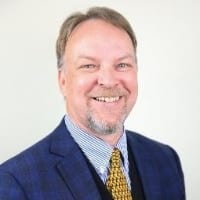
Patrick Plonski, Ph.D. has served as the Executive Director of Books for Africa since 2003. He holds a Ph.D. in International Education (2009) and previously served as Executive Director of the Minnesota Agricultural Education Leadership Council at the University of Minnesota (1998-2003), and Committee Administrator for the Minnesota House of Representatives Committee on Agriculture (1987-1998). Learn more about Books for Africa here: https://www.booksforafrica.org/
